Discovering Authentic Croatia's Secrets With Seoski Tourism
November 4, 2021 – Village tourism or countryside tourism - Seoski tourism in Croatia - offers authentic, traditional experiences. Aleksandra Kuratko, secretary of Udruga ruralnog turizma Hrvatske (Croatian Rural Tourism Association) tells us more about it, and their work to help facilitate it
Croatia's visitor offer is evolving and expanding. There are exciting aspects of authentic Croatia to be discovered. Away from the beach, villages inland often look remarkably similar to how they did one hundred years ago. There, crops are grown and produce made in ways passed down through generations of families. And, in some lucky instances, these family farmers are willing to open their doors, invite you inside and show you how they live.
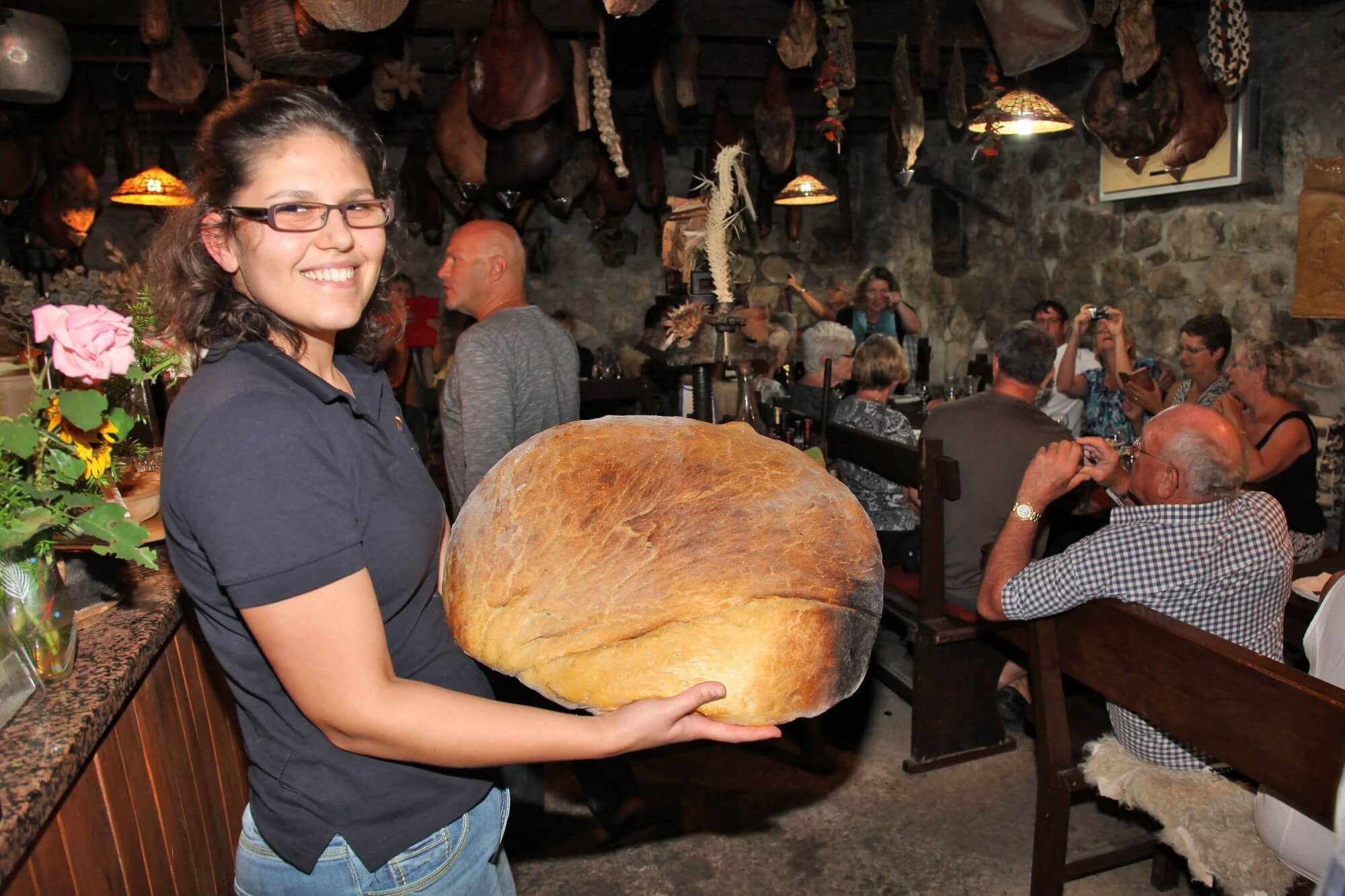 Bread from the peka at Agroturizam Antunović on Pelješac
Bread from the peka at Agroturizam Antunović on Pelješac
Seoski Tourism – translated as either village tourism or countryside tourism – is just that. Family farms that offer hospitality. These are some of the most homely and most welcoming accommodation experiences you can have in Croatia. Offering sights and sounds, tastes and flavours that you can't find anywhere else, visits or stays in Seoski Tourism places have long been loved by locals for weekend breaks or holidays outside peak summer. But, increasingly, these authentic Croatia experiences are being discovered by international visitors.
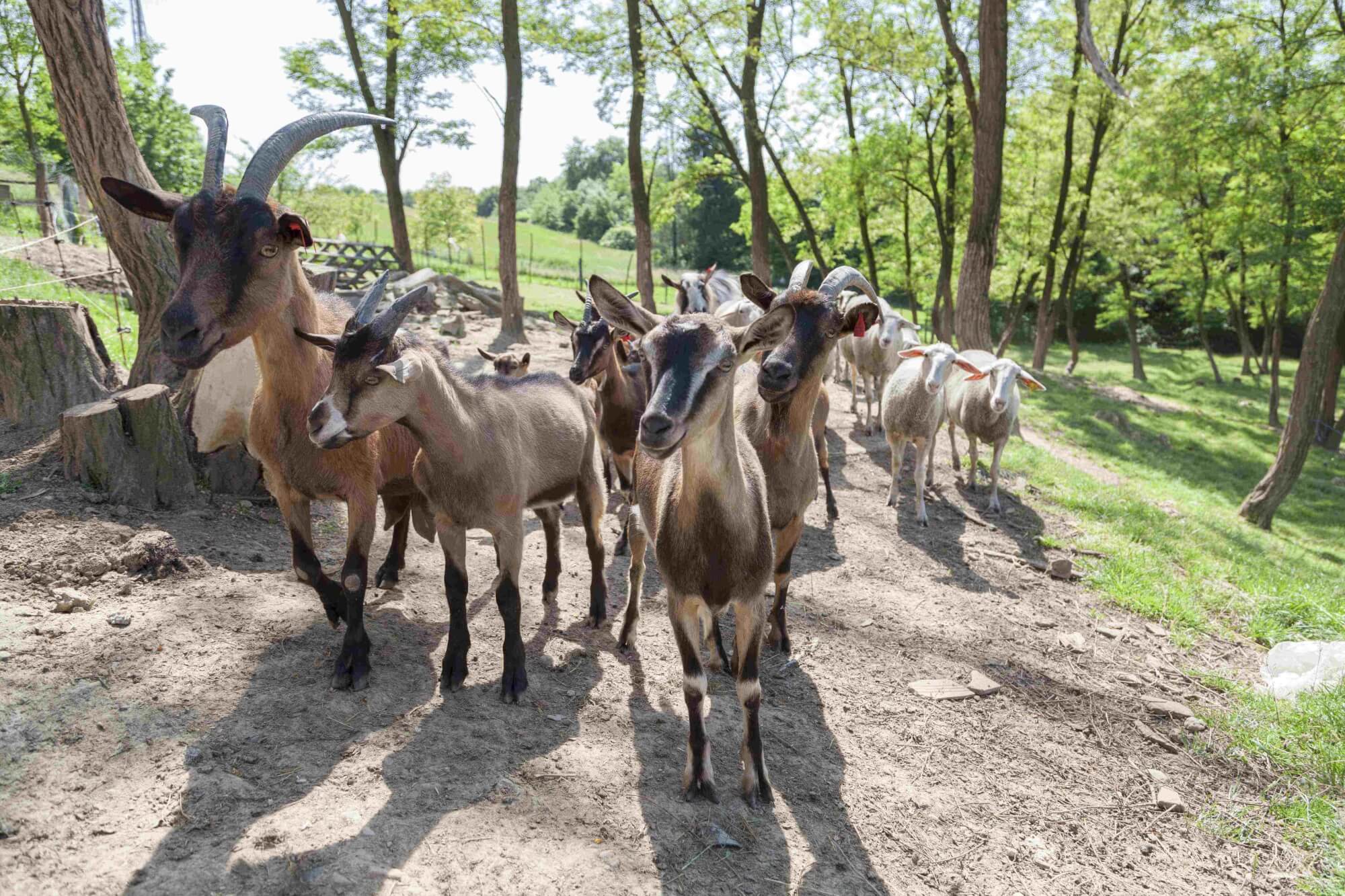 Moslavina goats at Kezele family farm © Davor Konjikušić
Moslavina goats at Kezele family farm © Davor Konjikušić
One institution trying to facilitate the growth in interest is Udruga ruralnog turizma Hrvatske - Croatian Rural Tourism Association. Since it was formed in 2016, they have tried to bring together Croatia's family farm hosts, to promote them and educate them, and to build bridges between these independents and tourist boards, tourist agencies, educators and even the wider world outside Croatia.
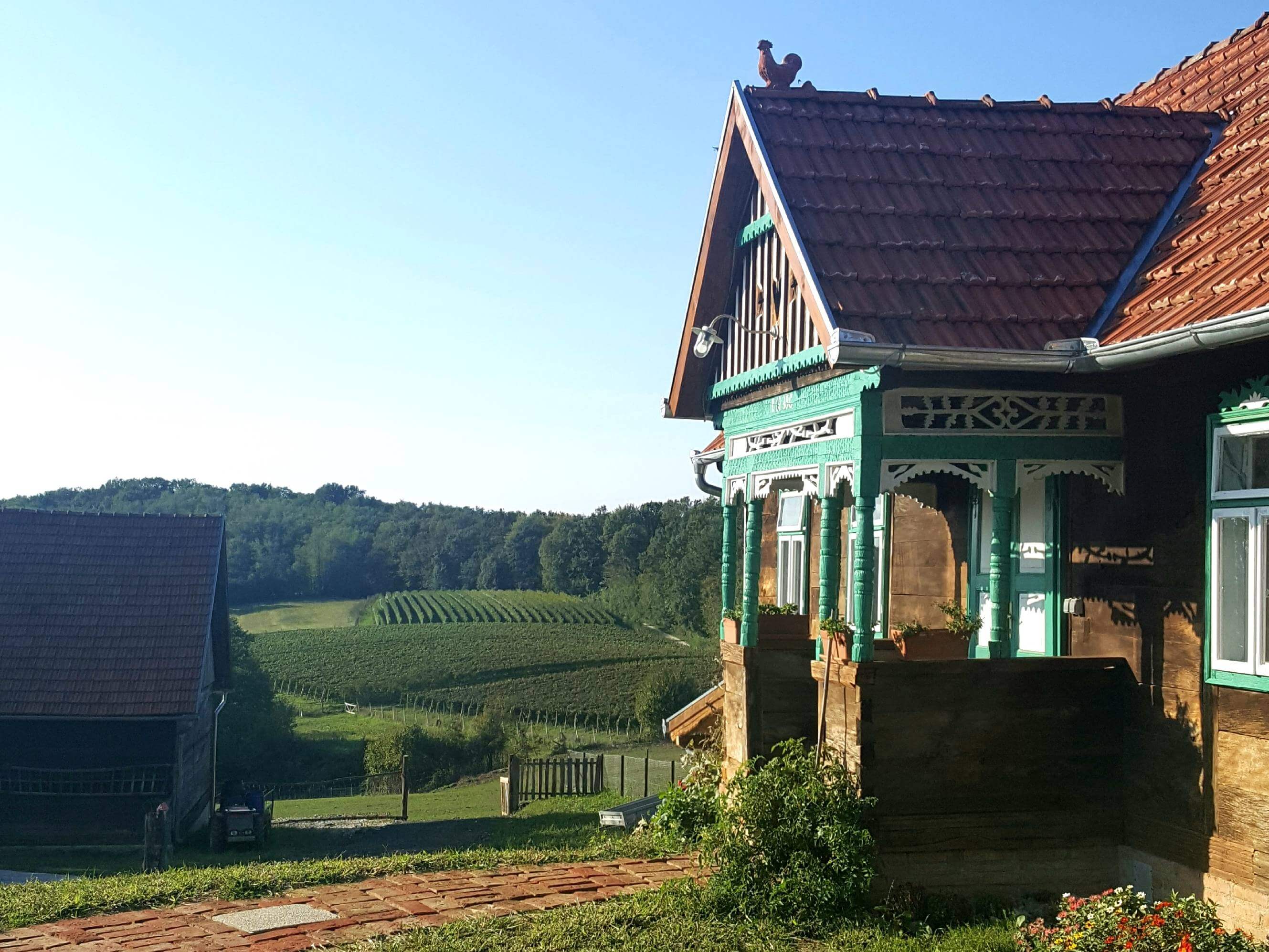 Seoski turizam Kezele in Šumećani, on the border of Zagreb County and Bjelovar Bilogora County © Davor Konjikušić
Seoski turizam Kezele in Šumećani, on the border of Zagreb County and Bjelovar Bilogora County © Davor Konjikušić
Based in Ivanić-Grad, Zagreb County, the Croatian Rural Tourism Association is currently touring the length and breadth of the country, holding workshops with as many Seoski Tourism family farms that will come. And if the farmwork doesn't allow them free time, then they can attend Croatian Rural Tourism Association workshops online.
On the eve of the association's online Seoski Tourism workshops for Central Croatia and Slavonia, TCN interviewed Aleksandra Kuratko, secretary of Udruga ruralnog turizma Hrvatske, to find out more about Seoski Tourism in Croatia.
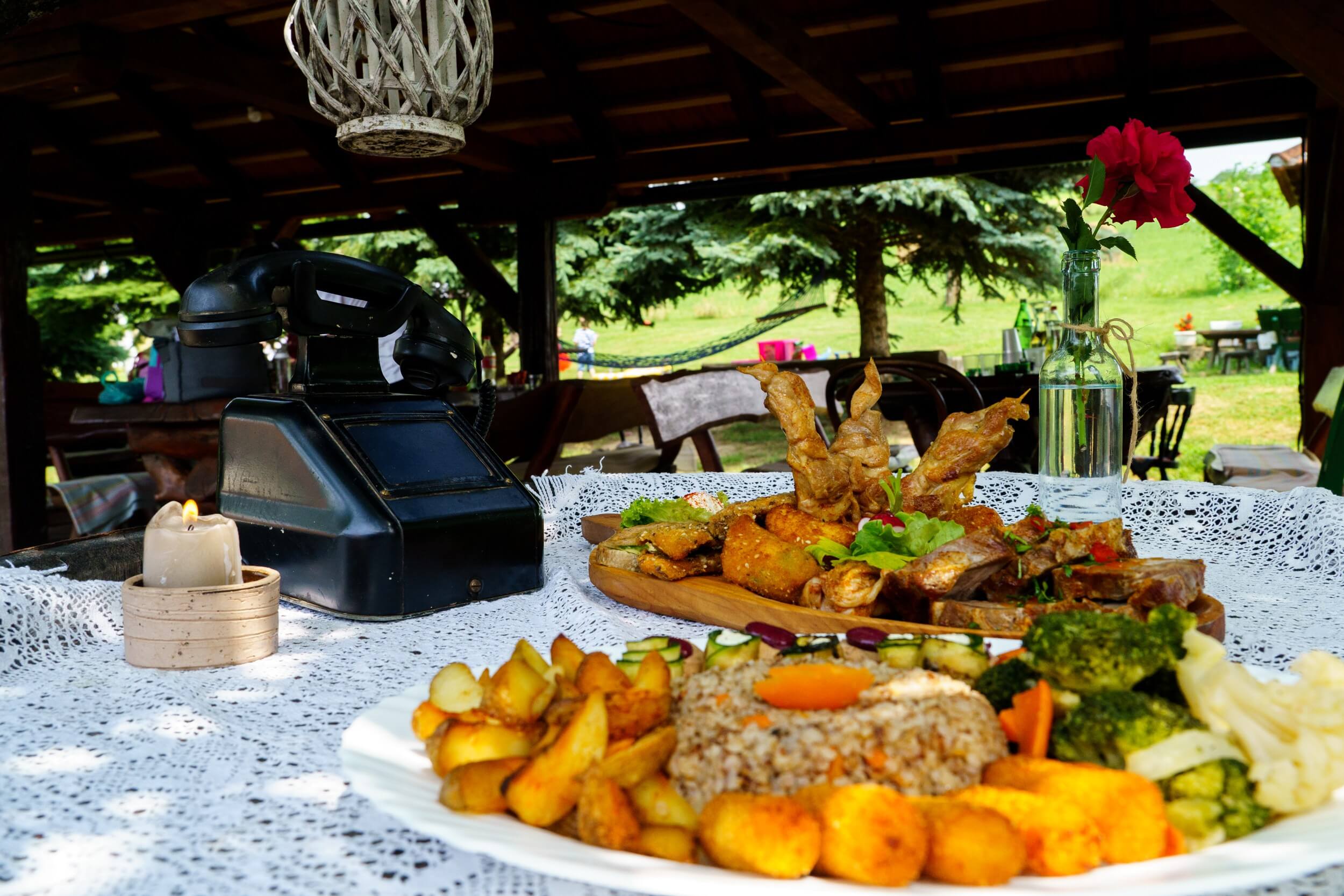 Prigorje specialties at Rakić family farm
Prigorje specialties at Rakić family farm
My name is Aleksandra Kuratko and I am secretary of Udruga ruralnog turizma Hrvatske. As an association, we are 5 years old.
We have 35 members, most of whom are service providers in what we call Seoski Tourism. We also have several tourist boards and two educational institutions as members.
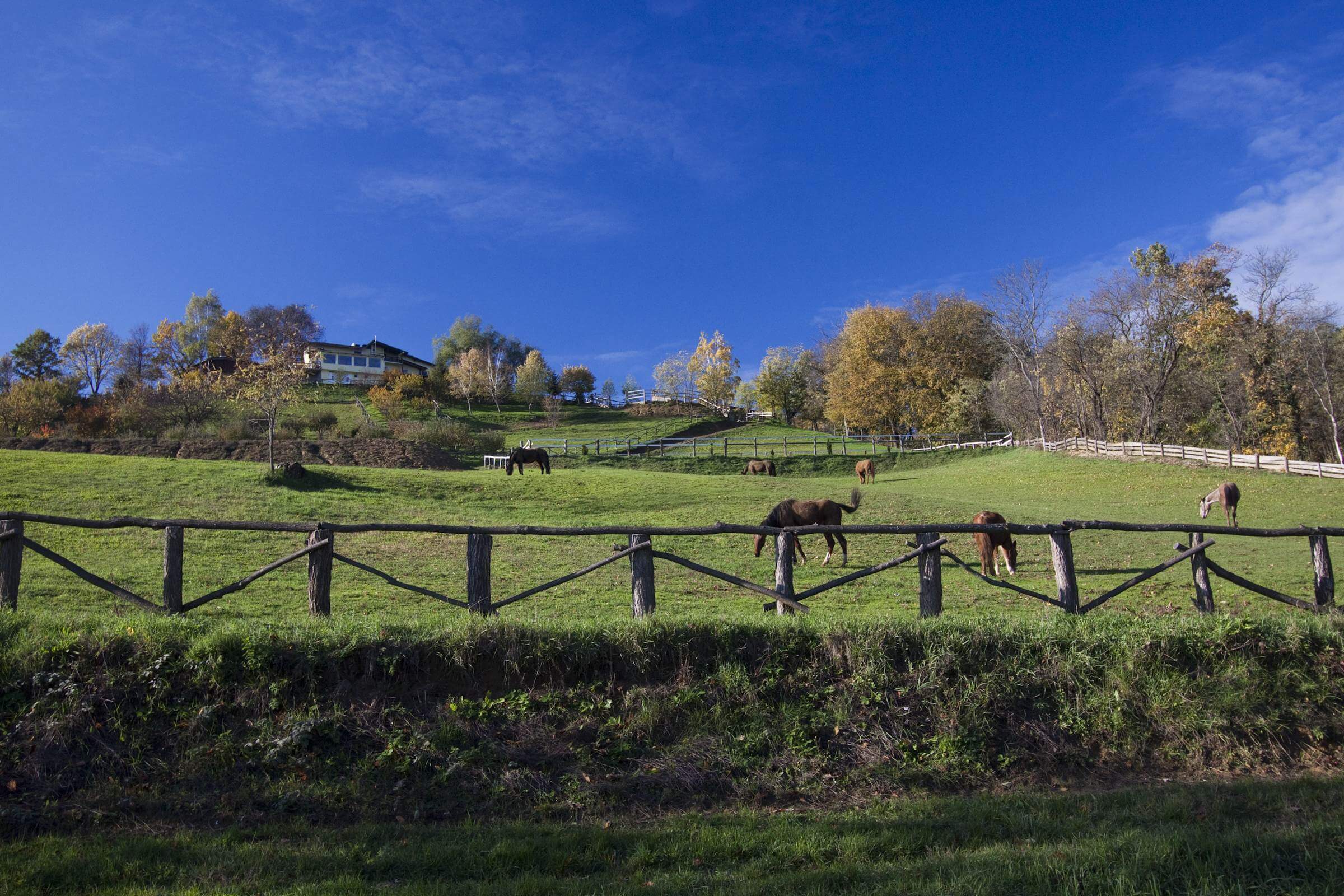 Bilogora horses in autumn at Agroturizam Na malenom brijegu © Vladimir Vlajinić
Bilogora horses in autumn at Agroturizam Na malenom brijegu © Vladimir Vlajinić
Seoski tourism is not quite the same as rural tourism, because rural tourism is many different types of tourism that happen in rural areas. Seoski tourism - which you might translate as village tourism - is quite specific. We assemble people who work in agriculture and who, at the same time, are also offering hospitality. In English, you might call them Farm Stays. Or Agro-tourism – a merging of agriculture and tourism.
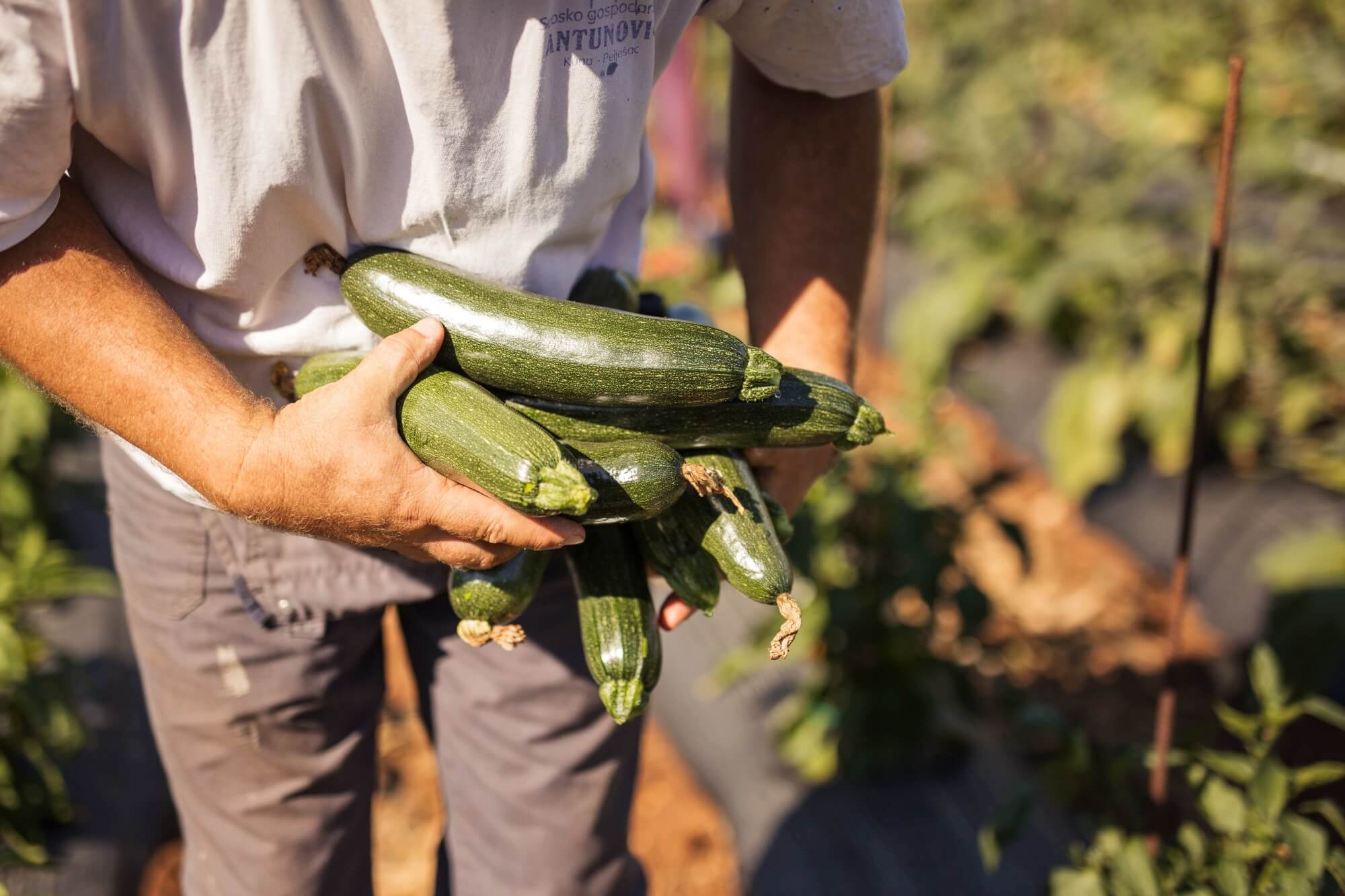 Fresh vegetables at Agroturizam Antunović on Pelješac
Fresh vegetables at Agroturizam Antunović on Pelješac
People who work on agricultural estates often take care of local cultural heritage. For example, they might maintain and renew traditional wooden or stone houses. Many also have etno collections, in which they preserve different objects from their region. Some of these objects might have been used in agriculture and households hundreds of years ago. So, they are preserving the cultural heritage of Croatian villages. This is what we call material cultural heritage. But, there's another kind.
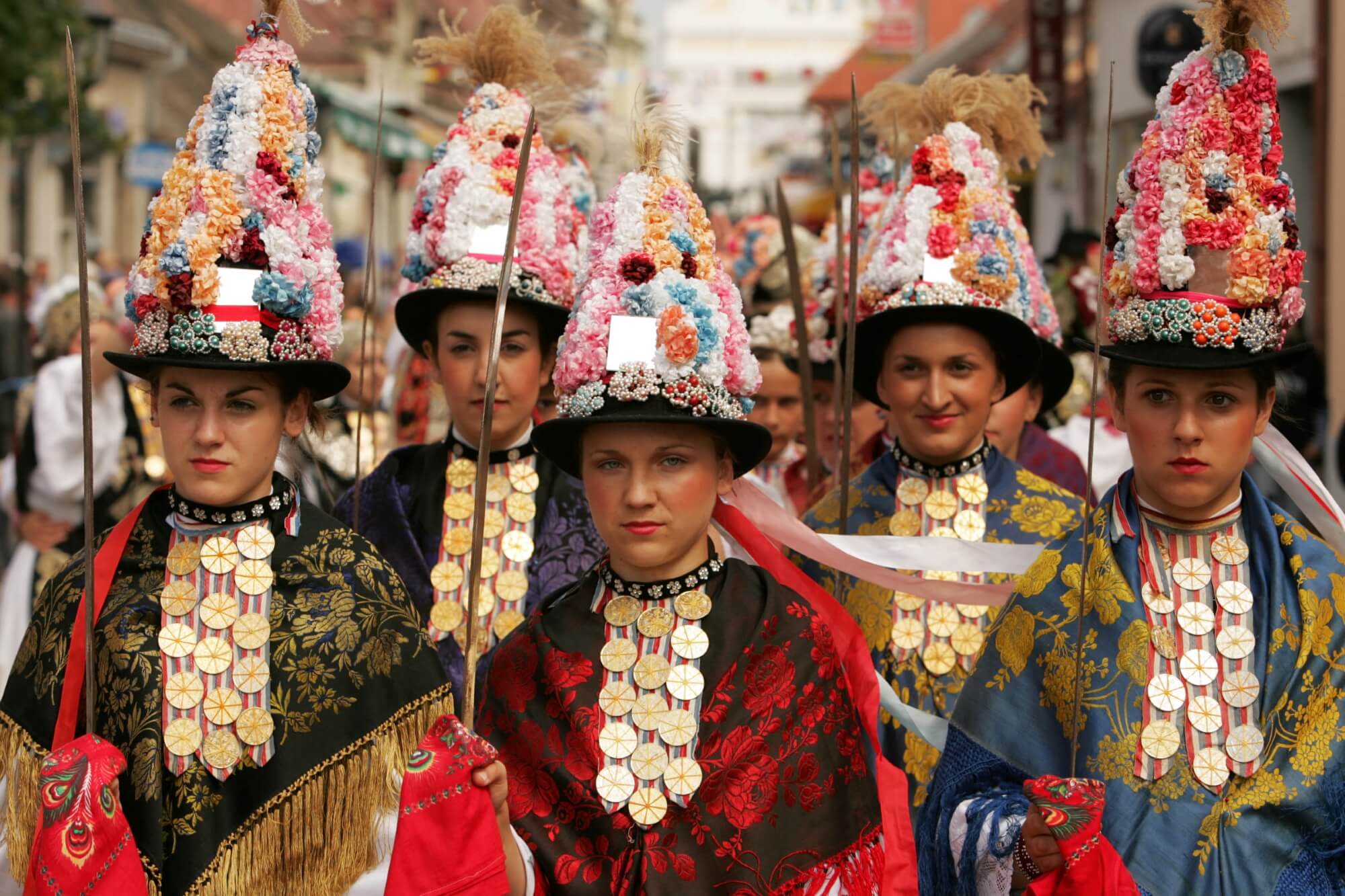 Cultural heritage preserved in one Slavonian village © Mario Romulić
Cultural heritage preserved in one Slavonian village © Mario Romulić
Non-material cultural heritage is also a part. That might be preserving old recipes of traditional, regionally-specific dishes. Or, it might be showcasing the songs and dance of local music.
We are currently running a project which is supported by the Croatian Ministry of Tourism and Sports in which we hold 37 Seoski Tourism workshops in the field all over Croatia. There will also be around 15 online workshops. The workshops are aimed at colleagues who currently operate in Seoski Tourism – they work in agriculture and offer hospitality. Also invited are local tourist boards and local action groups.
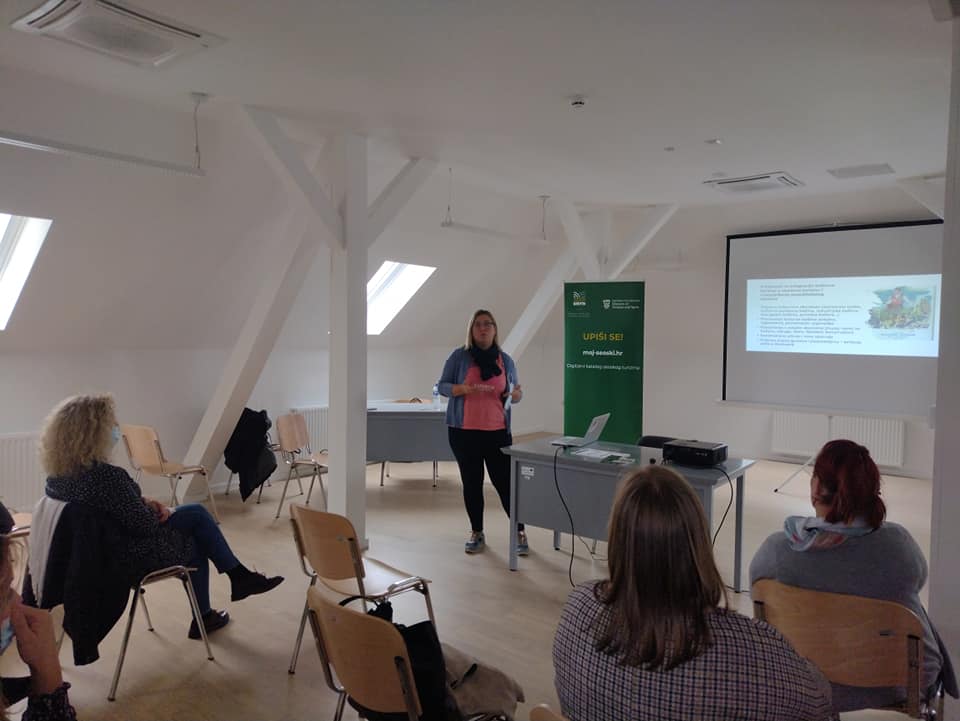 Photo from URTH workshop in Slatina
Photo from URTH workshop in Slatina
So far, we conducted 20 workshops in the regions of Central Croatia, Slavonia and Baranja, and Podunavlje. From next week until the end of the year, we will conduct the workshops in Istria, Kvarner, Lika and Dalmatia. Some service providers were not able to attend earlier workshops, because of work commitments of Covid. So, we decided to also offer access to the workshops online. Tomorrow is our first online workshop for Central Croatia and on Friday it's the online workshop for Slavonia.
These workshops are interactive discussions between our association, service providers and all other stakeholders. We discuss the legislative framework, which can be extremely complex. We talk about new trends in tourism for the post-pandemic era. We also discuss the importance of integrating cultural heritage in digital promotion.
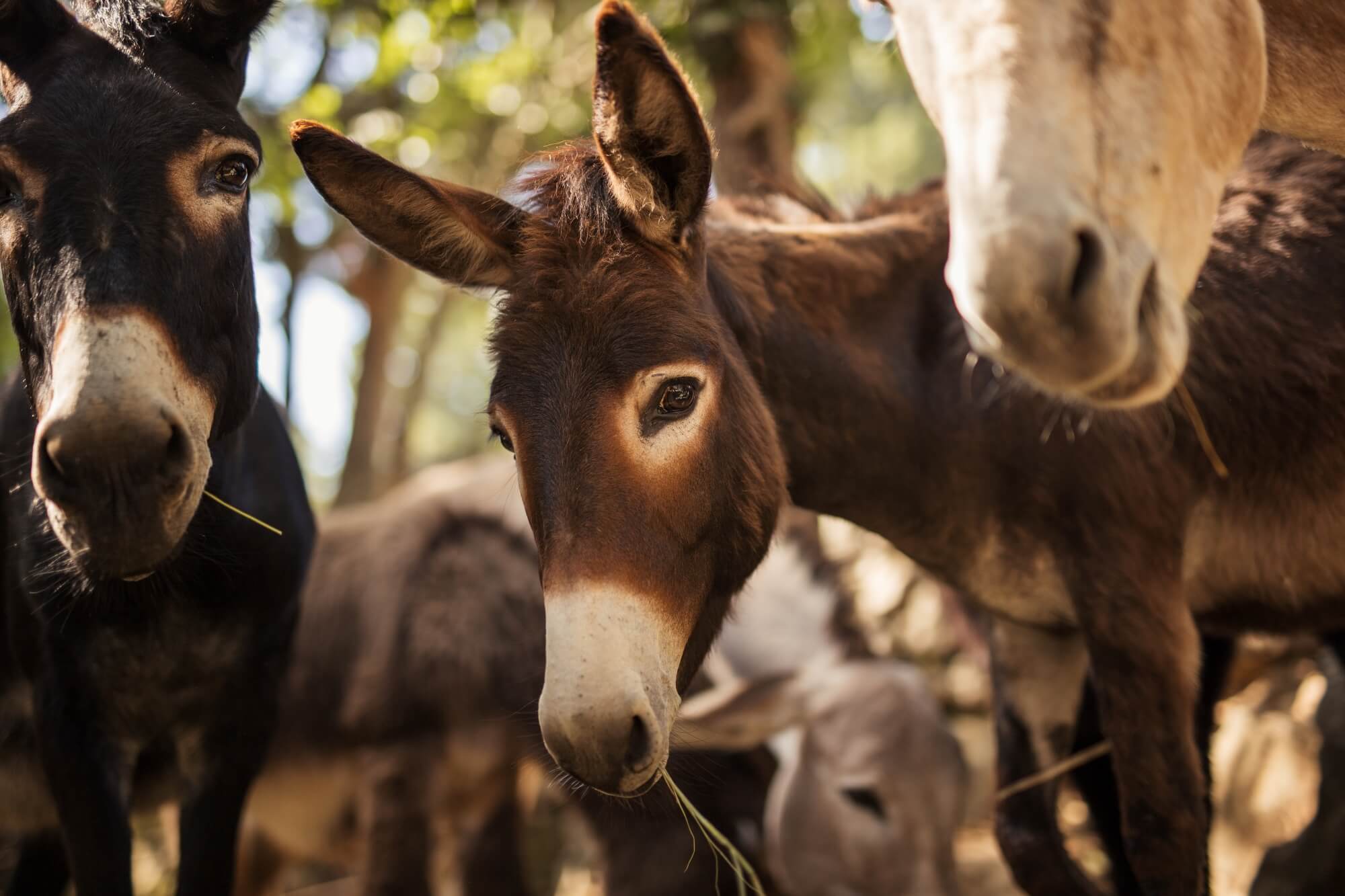 Donkey farm at Agroturizam Antunović on Pelješac
Donkey farm at Agroturizam Antunović on Pelješac
For the legislative framework, we have initiated the formation of a working group for the development of Seoski Tourism, which is now operating in the Croatian Ministry of Tourism and Sports. So, at the workshops, we ask if anyone is having issues. We collect the responses and address them in the working group.
Part of the workshop is the presentation of a new web application of Seoski Tourism, which we have developed with Croatian Ministry of Tourism and Sports. It has two purposes. One is to create a digital catalogue of Croatian Seoski Tourism. You can see region by region some of the Seoski Tourism options – currently around 40, those who have already enrolled.
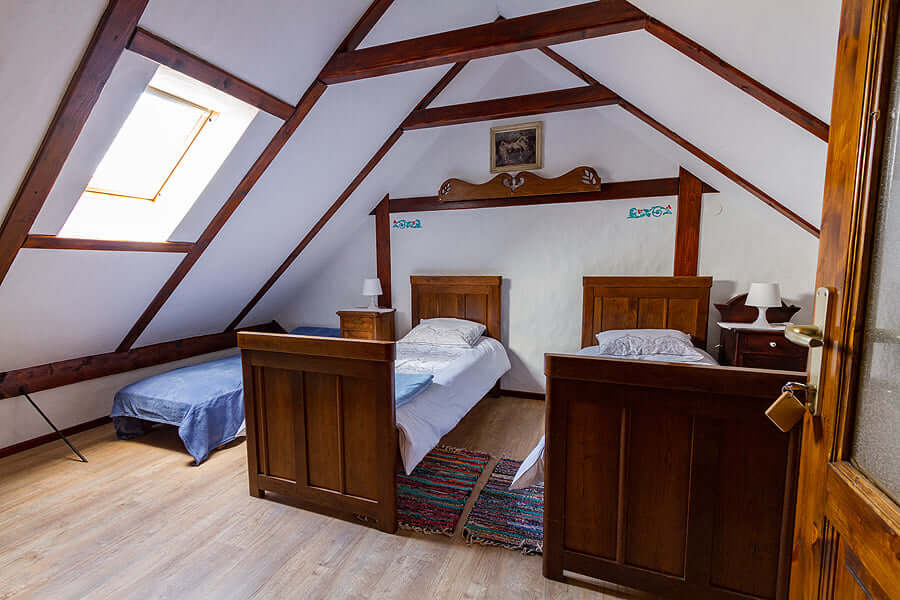 Podravina Etno rooms at Zlatni klas Otrovanec
Podravina Etno rooms at Zlatni klas Otrovanec
A version of the app is currently available on the website of the National Tourist Board. But, they are building a new website. The forthcoming version of the catalogue will likely be more user-friendly with many more functions and options. On the new website, Croatia's Seoski Tourism options will be detailed in many different languages. It should be a great resource not only for tourists but for travel agencies, journalists like you and for educational institutions. That's the reason we are devoting time in our workshops to encourage Seoski Tourism providers to enroll. We are just at the beginning of the process.
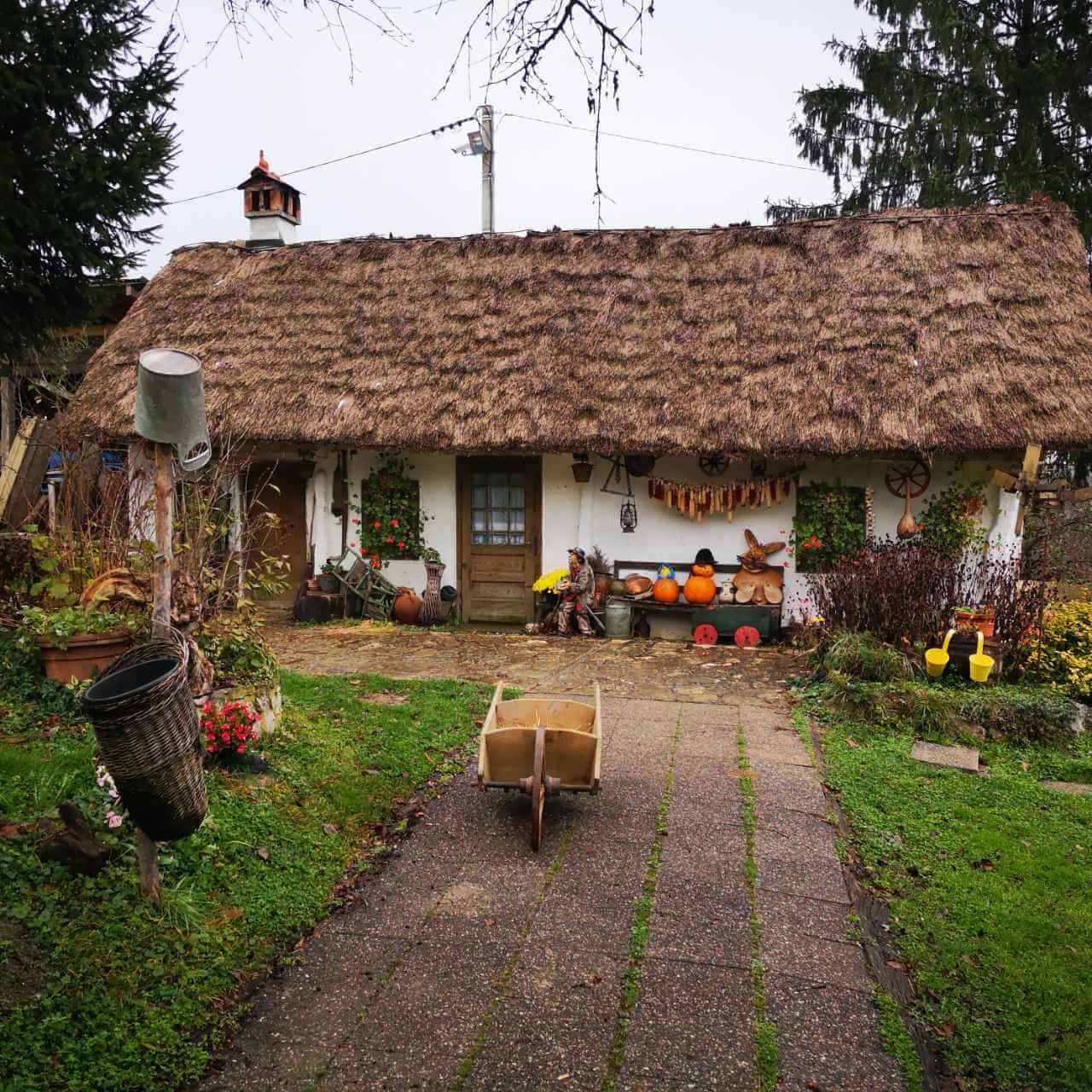 Grešna pilnica in Zagorje © Jasna Podboj
Grešna pilnica in Zagorje © Jasna Podboj
The second purpose of the app is to collect information about the service providers. This info will be used by our working group when defining a Croatian model of Seoski Tourism. So far, we have taken examples from Slovenia, Italy and other countries that are successful with Seoski Tourism. But, these models were entered into our legislative system without fully considering our distinct business and cultural environments. That is now about to change.
We are very happy that, following many years of partially successful advocacy, there is now political will at a ministerial level to really shape things up, to change the laws and regulations in order to facilitate Seoski Tourism. We want to encourage more Seoski Tourism, not to have people from agriculture being turned away because of the difficulty of the process and bureaucracy.
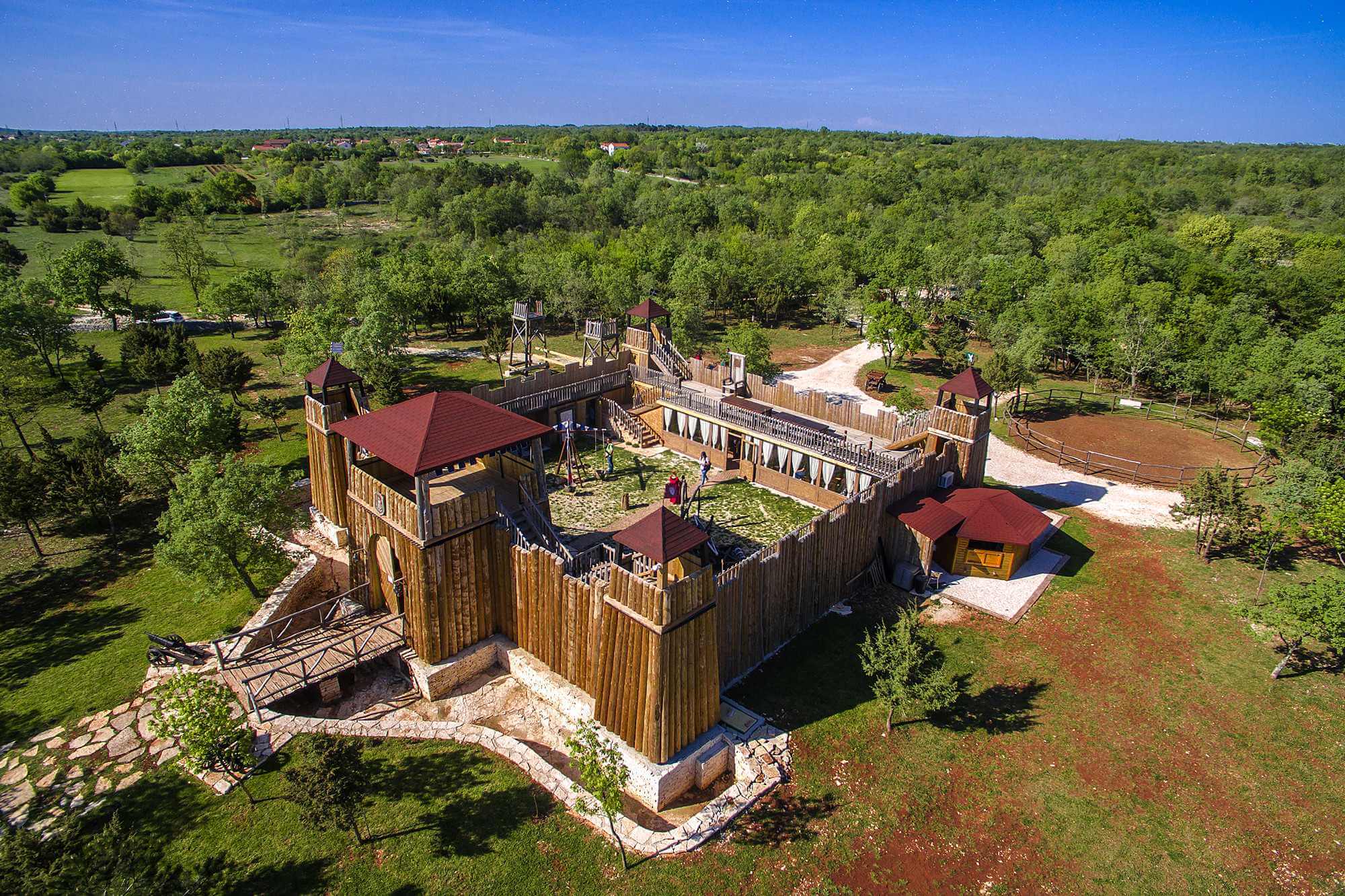 Medieval Theme Park San Michael © Silvia Otočan
Medieval Theme Park San Michael © Silvia Otočan
You said part of the workshops will focus on new trends. What are some of these?
Research has been done by a working group that is developing a new tourism strategy for Croatia. It's called Strategy for Sustainable Tourism to 2030. Under the auspices of this group, a number of research fields have been analysed.
The collected data shows that a huge percentage of tourists are now more inclined to eat locally grown and healthy food. They want to spend their time on estates that are run in accordance with ecological principles. So, they really care about issues like how waste is disposed of etc. They also pay a lot of attention to culture. They are curious to learn exactly how we are living, how we are working and how we produce things. They want to learn about our society and culture. And, importantly, they really care about how they spend their money. Above all, they want to spend money in areas that can help support local communities.
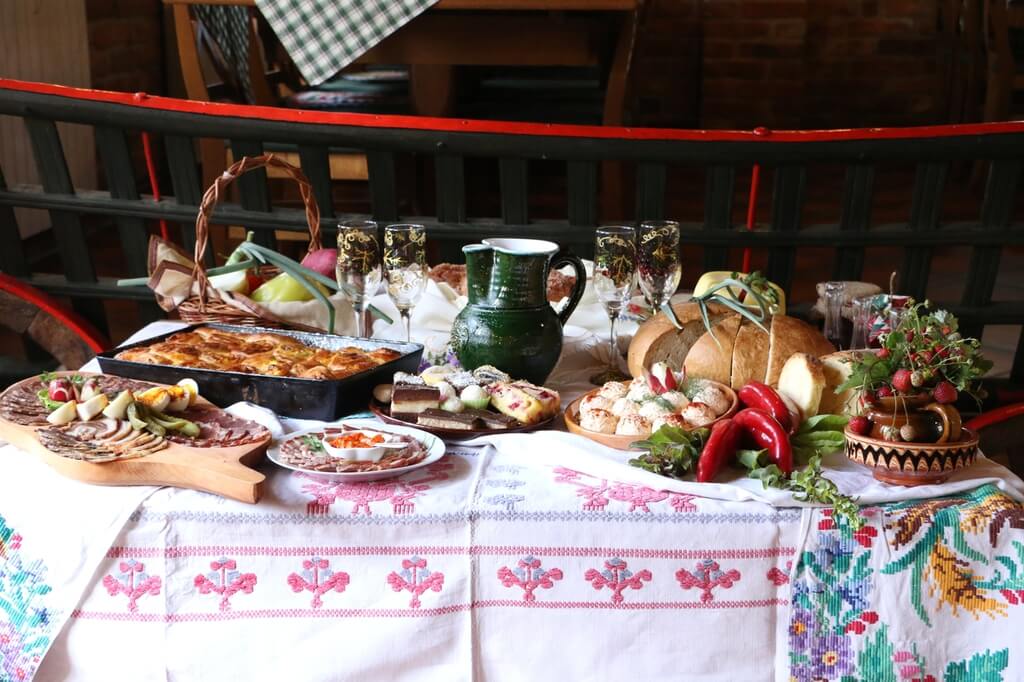 Prigorje Breakfast at Rakić Family Farm
Prigorje Breakfast at Rakić Family Farm
For us, this is really important. Because Seoski Tourism answers these demands to an incredibly high level. We do produce local, healthy food. Not only on the agricultural estates where you can experience Seoski Tourism, but also from their neighbours who just do agriculture. We are concerned with ecology, we protect cultural heritage and the money spent in Seoski Tourism stays in local communities, where it has very beneficial effects.
In the digital promotion part of the workshops we are trying to persuade people about the importance of their online presence. Basically, these days, if you're not online, it's almost like you don't exist. So, we try to explain the importance of having good-quality photos, short videos and a regular online presence.
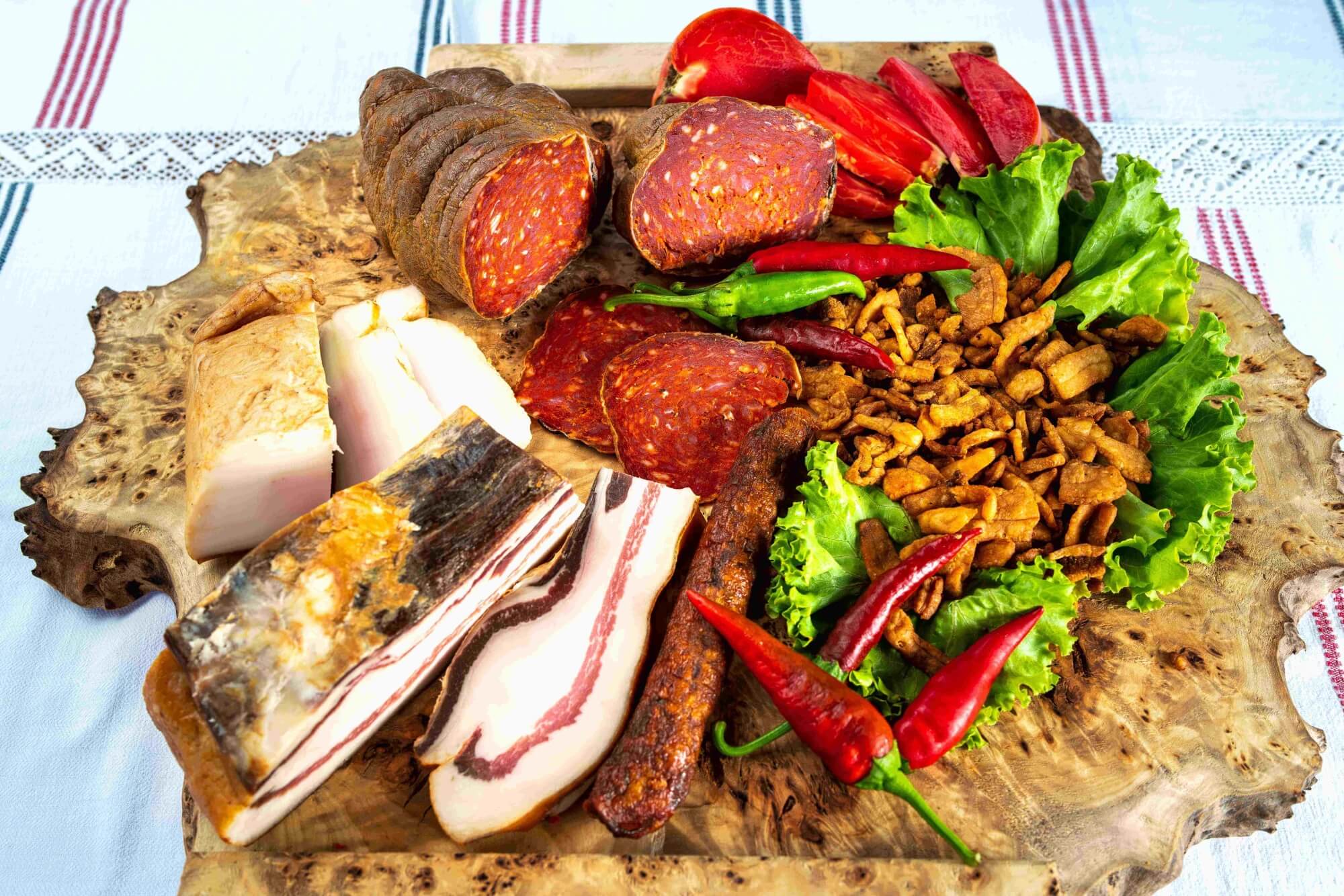 Kulen, čvarci and other specialties at Baranjska kuća © Denis Despot
Kulen, čvarci and other specialties at Baranjska kuća © Denis Despot
That's interesting. In some cases, it might be like two different worlds colliding - people who work in a traditional industry and a traditional environment having to adapt to a very modern way of operating. There's also another potential collision when providers learn of the expectations within modern tourism. Because these people can no longer just work in agriculture. To operate in Seoski Tourism, you're also very much expected to also be a host.
Yes. All of our current service providers who are successful within Seoski Tourism are also great hosts. It's essential. You can see it in almost all of the reviews for this kind of tourism. Guests come for the food and drinks and surroundings, yes. But, what they value the most, what they remember the most, is the host part of the experience. On the estates of Croatian Seoski Tourism, guests are welcomed like family. Across all of Croatian tourism we are expected to be good hosts. It's part of our reputation and the reason why many people come here from all over the world. In Seoski Tourism, it is vital we live up to those expectations.
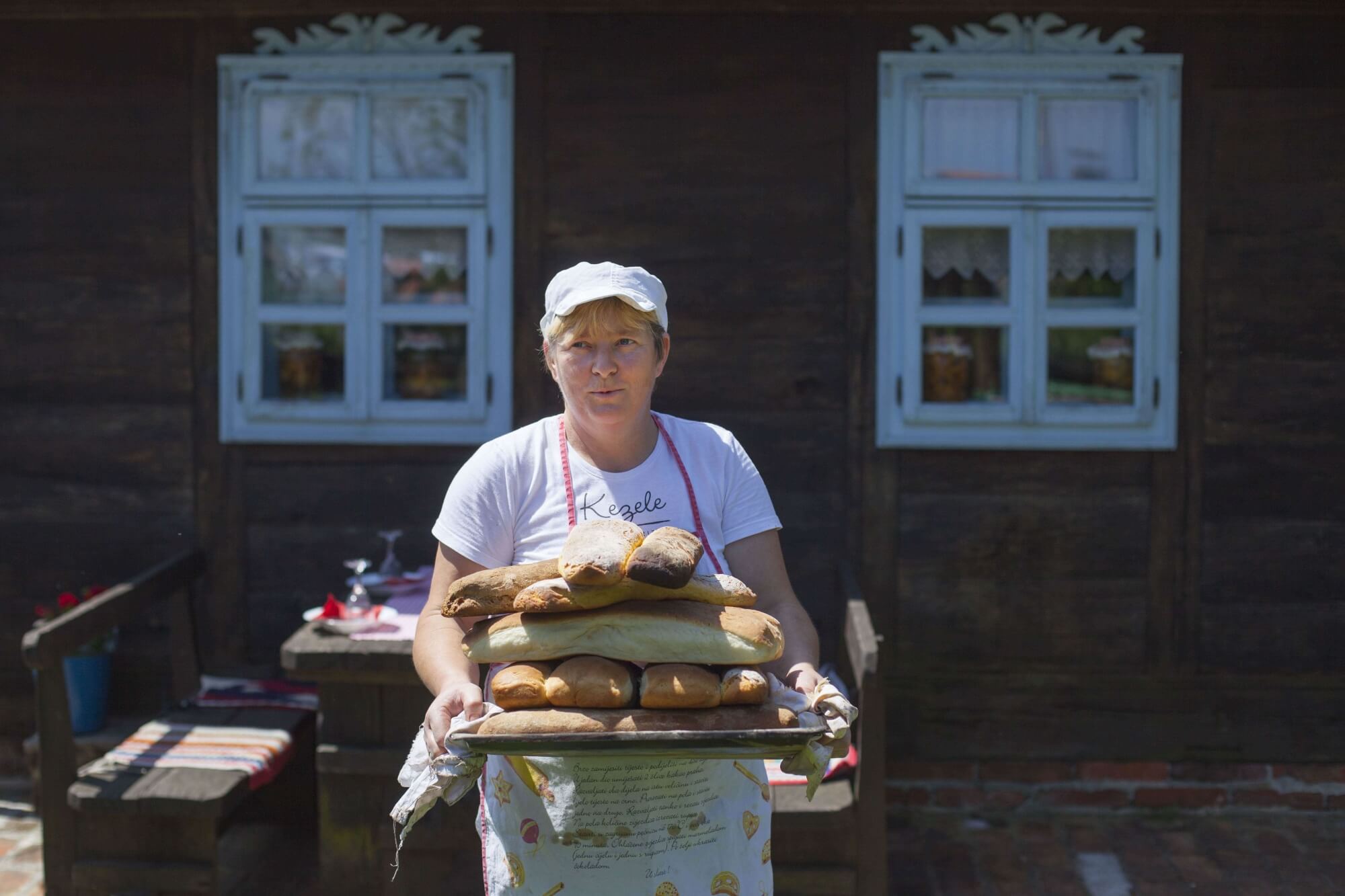 Kezele family farm © Davor Konjikušić
Kezele family farm © Davor Konjikušić
Another aspect of this, which is a more recently-observed element, is that visitors often want an insight into the actual lives, even the personalities of their hosts. They want not only to taste the homemade sausages you make, but they also want to know how you do it, where you do it, how you learned to do that. When they go to Spain, they want to know how the people there make their wine. And, when they come to Croatia, they want to learn how we do it here.
So, all in all, those of us in Seoski Tourism are really busy. We are in agriculture, yes, but we are also in tourism and we are also online. With this more recently-observed aspect, we will need to try and devote even more time to our hosting. It can be difficult to balance the demands on your time. But, in our workshops, we are trying to persuade people to talk more about themselves, their lives, their cultural heritage. And, if there isn't time to do everything themselves, then to involve different and often younger generations of the family. Sometimes within the hosting or alternatively just with the online promotion and presence.
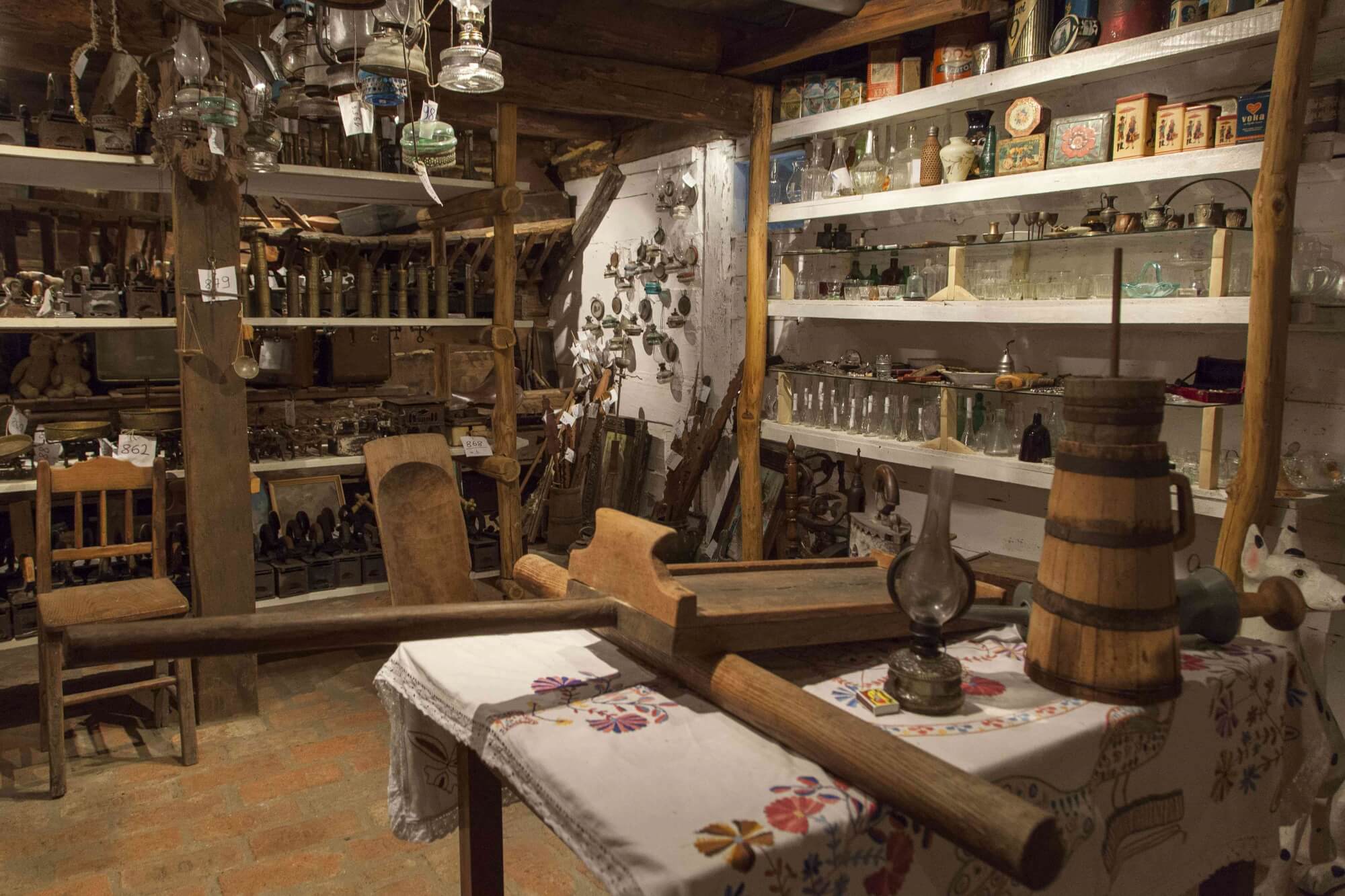 Kezele family farm ethno collection © Davor Konjikušić
Kezele family farm ethno collection © Davor Konjikušić
I've visited some family farms that were right at the start of their journey with Seoski Tourism and they seemed surprised that I was at all interested in what they do and how they do it. I think maybe they thought I was a bit crazy.
Yes, that is a response we sometimes also see at first. I think it's because our generation takes a lot of things for granted. We sometimes think that what we do is just what we do. We are not so good at showcasing it. “Why would I show someone how I make my cheese? I make my cheese like my grandmother used to make it” But, for those who open their doors to Seoski Tourism, inquiries about how they do what they do are only increasing. So, they seem to appreciate how we advise them in the workshops.
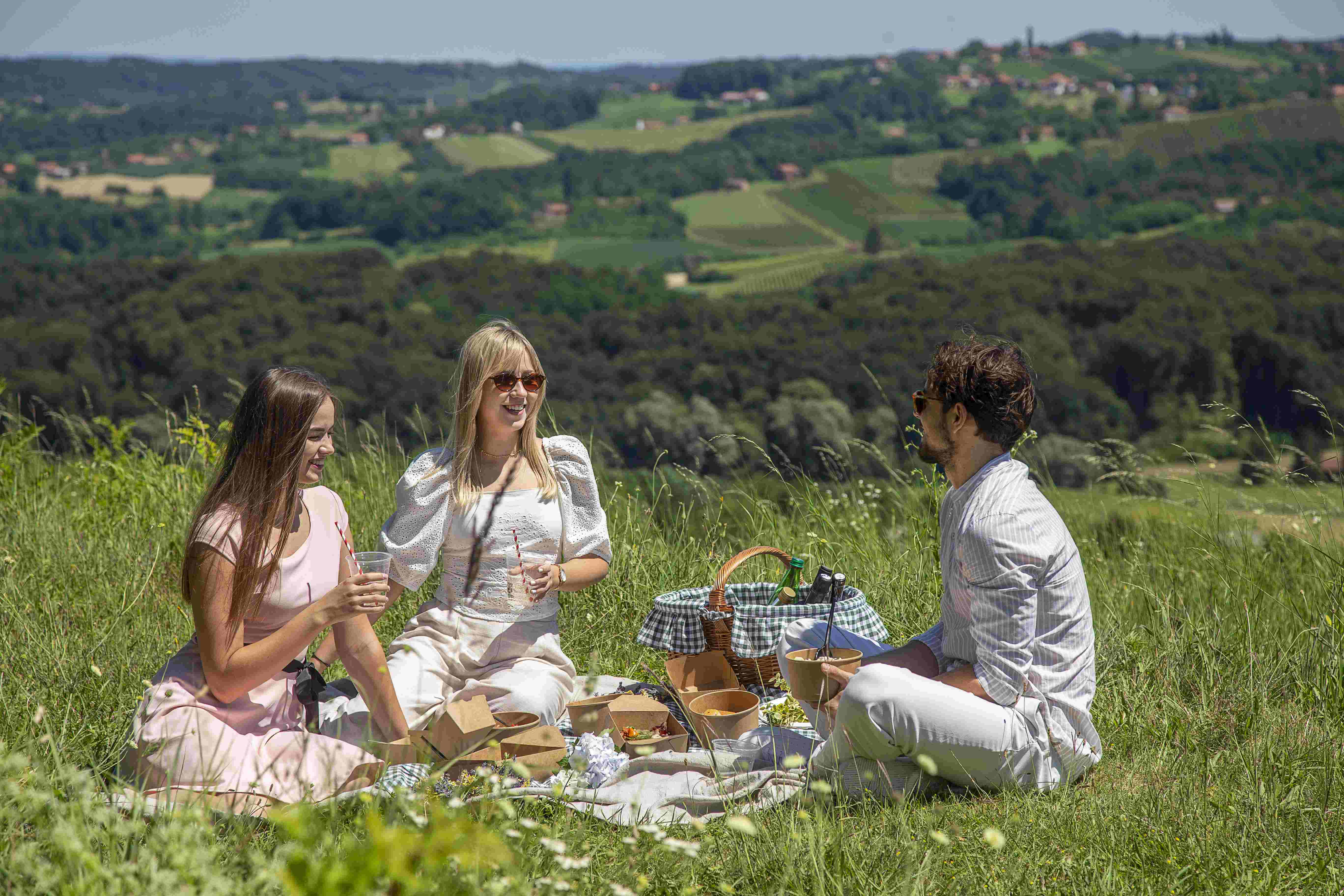 Picnic by Restaurant Međimurski dvori © Igor Nobilo
Picnic by Restaurant Međimurski dvori © Igor Nobilo
We are trying to let our producers know that Seoski Tourism is not just a platform to sell their produce and an overnight stay, but it's a full experience they can sell. There are agricultural farms in Austria that are established in tourism that you must pay only to visit. Of course, that doesn't happen currently anywhere in Croatia, even though some of our Seoski Tourism estates have sections that look like museums.
Some of these aspects are very new. And the feedback is great. I truly believe there are hidden treasures to be discovered in some Croatian villages. We are here to tell that story.
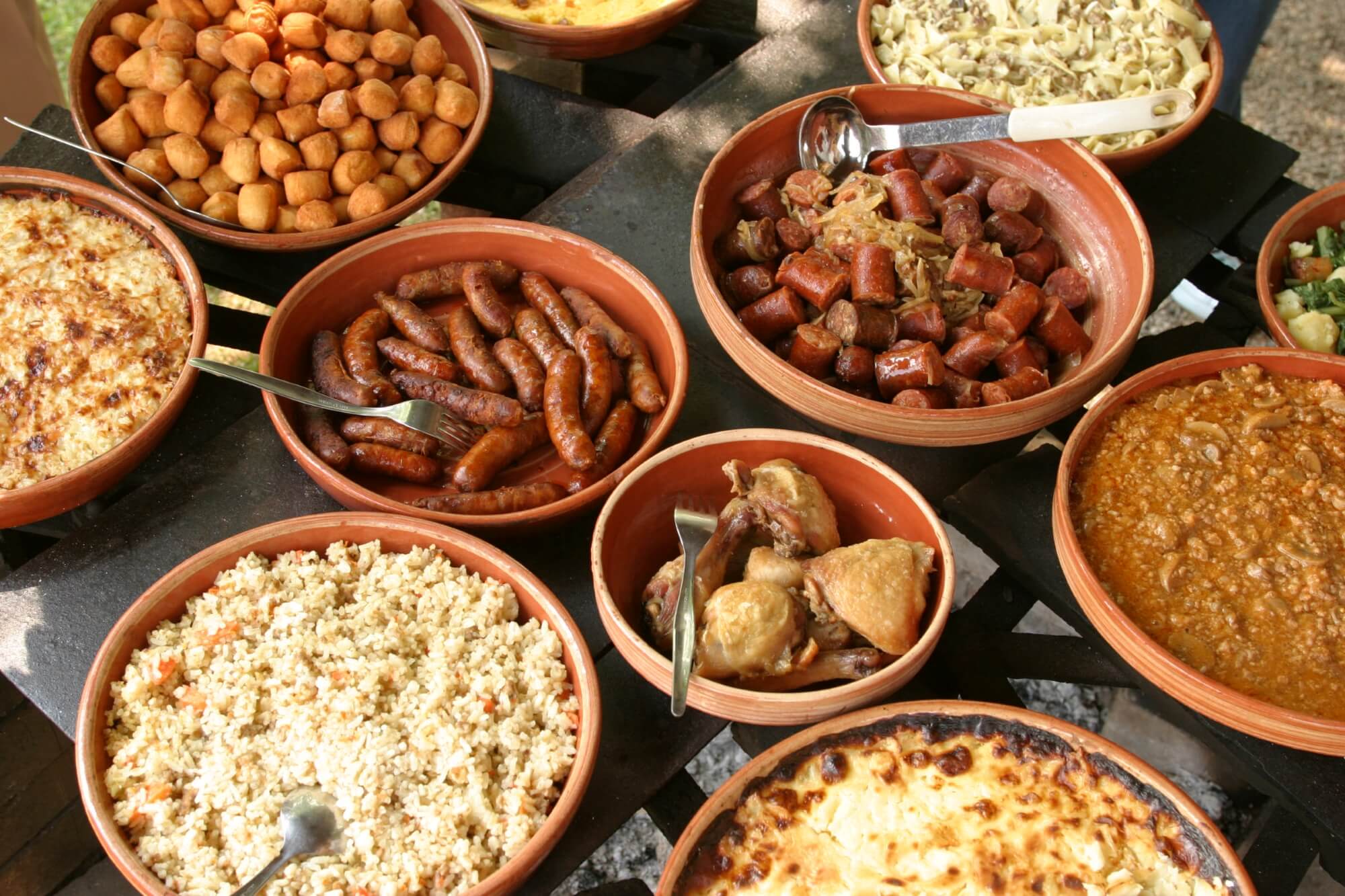 Selection of food from a Slavonian village © Mario Romulić
Selection of food from a Slavonian village © Mario Romulić
What is so rewarding about Croatian Seoski Tourism that international visitors would want to go to a traditional farm in some inland village instead of lying on the beach in Dalmatia for 14 days?
People come because they really want to see a different side of Croatia. And, there are many different aspects of Croatia to discover – not just Seoski Tourism, but also National Parks and Nature Parks. All of our current trends show us that more and more tourists are willing to come inland from the coast or to explore a different part of Croatia – inland Istria, for example, or continental Croatia.
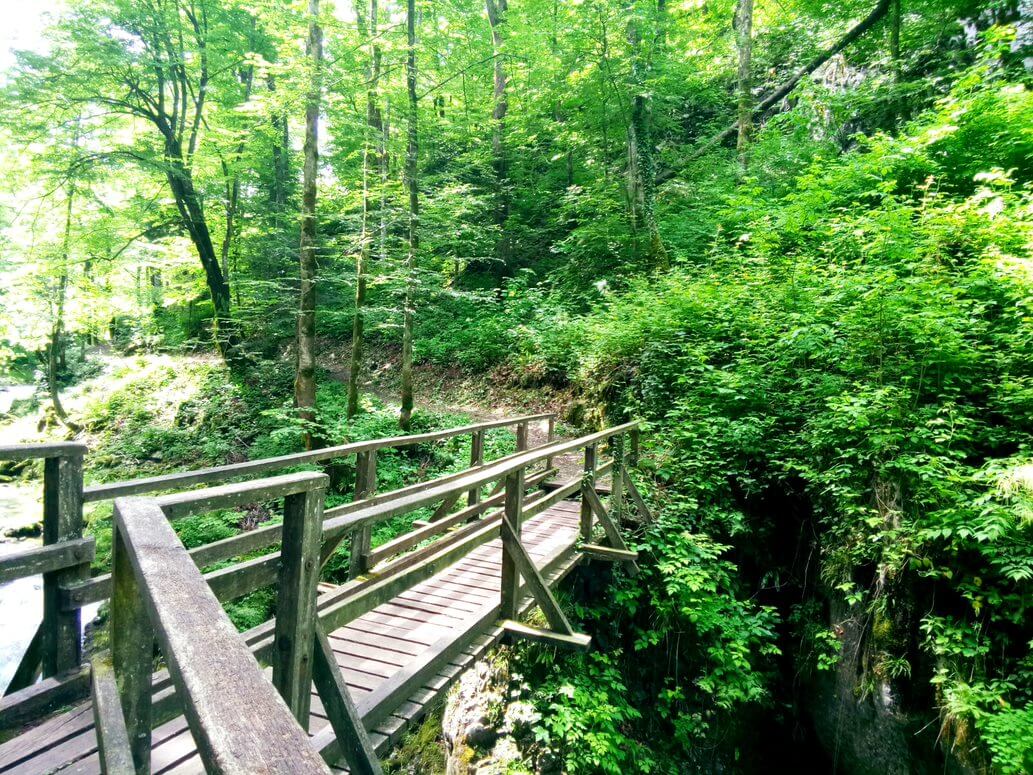 Kamačnik river canyon © Aleksandra Kuratko Pani
Kamačnik river canyon © Aleksandra Kuratko Pani
They really want to try authentic, local food. They want to eat healthy, to know what they are eating and how it is made. And, they want to experience flavours that are different from the usual ones they get from the supermarket.
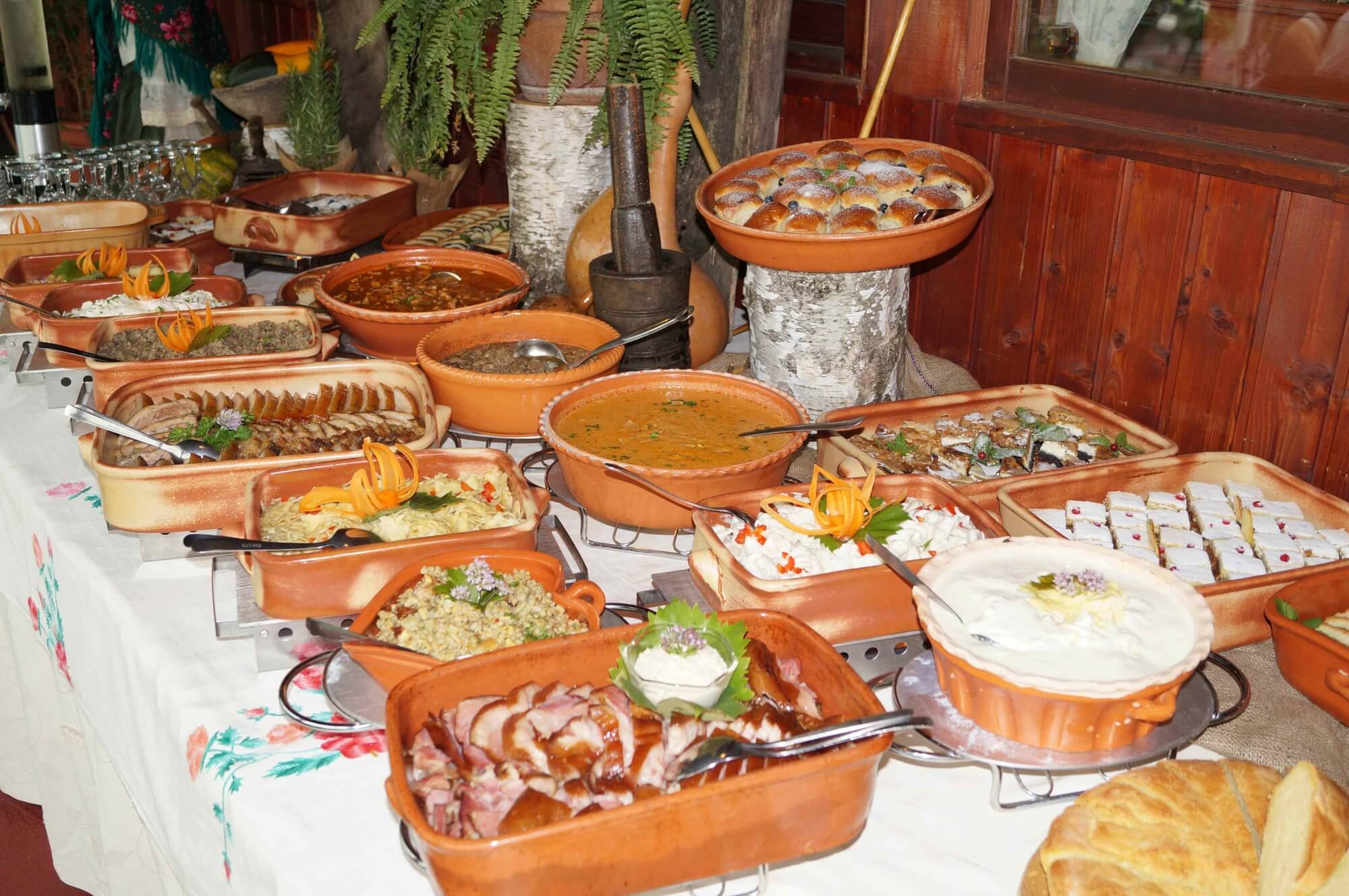 Traditional Međimurje table at Etno restaurant Međimurski dvori
Traditional Međimurje table at Etno restaurant Međimurski dvori
Also, I would say that with Seoski Tourism, people get to know better an authentic version of Croatia and its culture. It's a story we hear very often from our members. Some of them are visited by large groups from cruisers. These are people who might be on a cruise on the Adriatic and who journey inland for a day trip. Or, it might be a group who are cruising the Danube and disembark to visit a family farm in Slavonia, Baranja or Srijem.
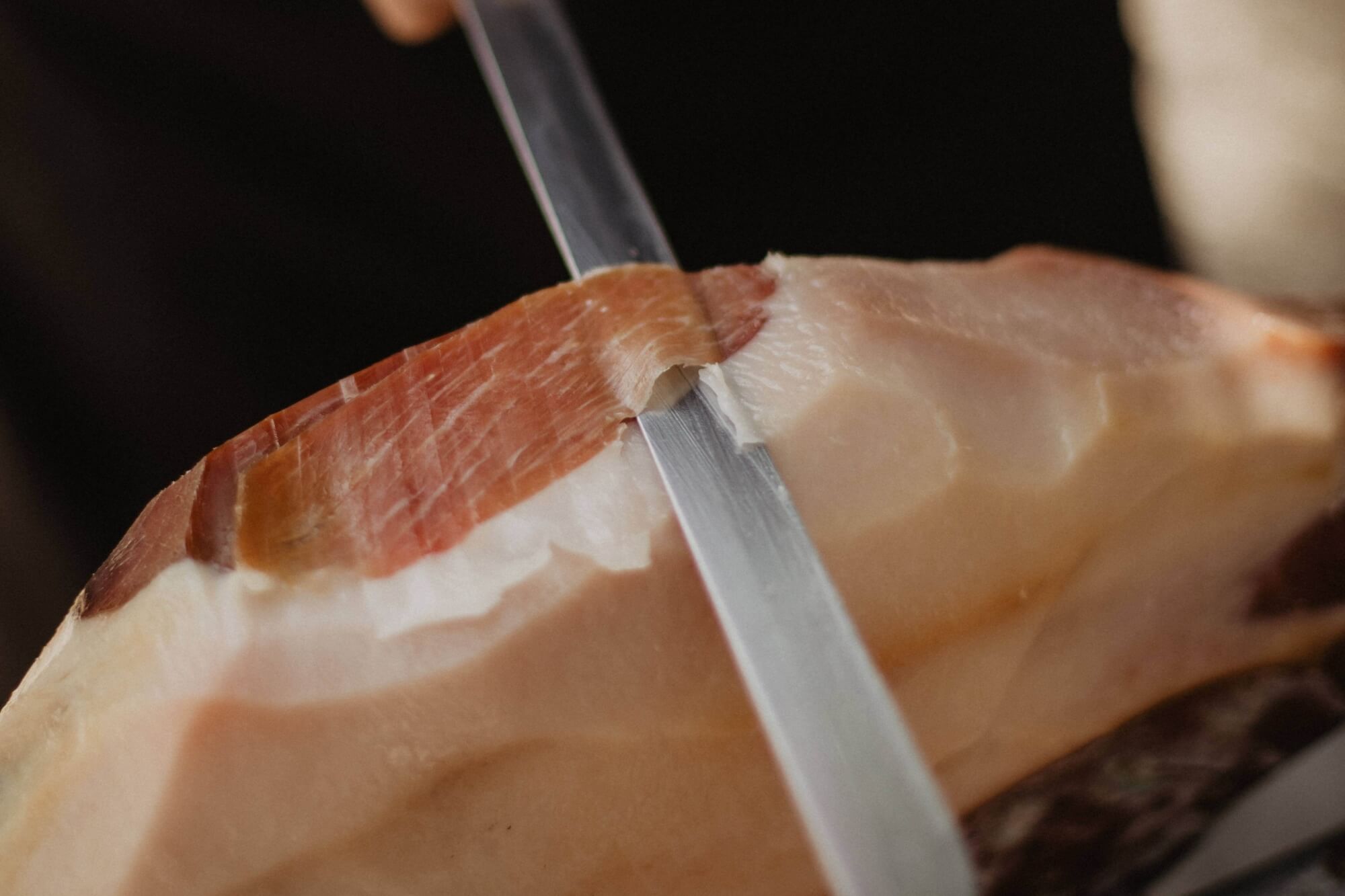 Prosciutto from Drniš at Agrotourism Kalpić © Ivana Kalpić
Prosciutto from Drniš at Agrotourism Kalpić © Ivana Kalpić
When they visit farming estates on day trips, it's very often a huge 'wow' moment for them. For many, in their minds, Croatia is simply sun and sea. And that's not entirely their fault. We, as a country, have done very little until now to promote alternative sides of Croatia. The visitors experience these wow moments because of the hospitality they receive and because of the tangible aspect of the visit. This is a modern aspect – people want to touch things, know how things feel, taste, smell. They want to ride on horses or feed them. Or take part in cultural activities. These parts of a visit to Seoski Tourism are very difficult to experience anywhere else.
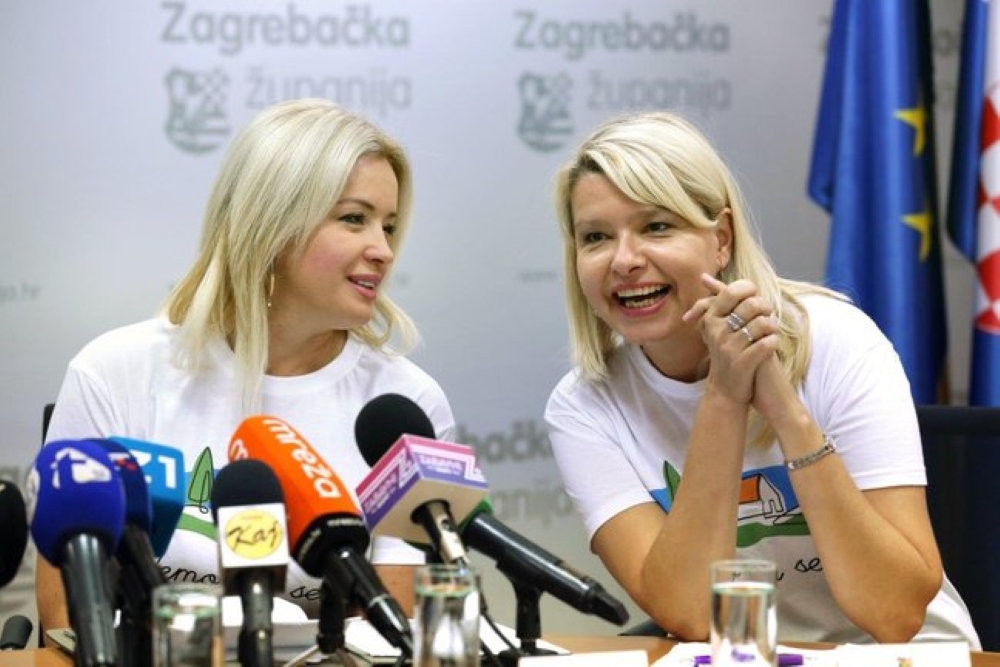 (left) Ivana Alilović, director of Zagreb County Tourist Board (right) Aleksandra Kuratko, secretary of Udruga ruralnog turizma Hrvatske (Croatian Rural Tourism Association) © Zagreb County
(left) Ivana Alilović, director of Zagreb County Tourist Board (right) Aleksandra Kuratko, secretary of Udruga ruralnog turizma Hrvatske (Croatian Rural Tourism Association) © Zagreb County
Udruga ruralnog turizma Hrvatske's online Seoski Tourism workshops begin today and their physical workshops continue next week in Istria.
If you'd like to read more about rural tourism in Croatia, then look here
Goran Vrabec Best Young Farmer in Croatia
ZAGREB, 21 May 2021 - Goran Vrabec has been named Croatia's best young farmer in 2021, a farmer who owns a family farm in the northwestern region of Zagorje growing chili peppers, and he was presented with the prize by Parliament Speaker Gordan Jandroković on Friday.
Vrabec was chosen from among 21 finalists and along with the first prize, he also won a reward of HRK 25,000, donated by Zagrebačka Banka.
Brankica Borović, whose family-run farm business produces natural, dermatologically tested cosmetics based on immortelle and almond oil, won second prize and HRK 15,000, while wine maker Ivan Gerštajmer Zelember won third prize and HRK 10,000.
The competition for the best Croatian young farmer was organised by Croatian member of the European Parliament Sunčana Glavak, the Agriculture Ministry and the Jutarnji List daily.
The finalists will travel to Brussels for a ceremony at which the best EU farmer will be awarded.
Zagrebačka Banka has secured financial education for the young farmers and will assist them in filling out forms for EU funds, while the Konzum retail chain, which is a sponsor of the competition, will sell their products.
Glavak said that the record high number of applicants showed that young people were very interested in staying in Croatia and its rural areas.
She said that it was encouraging that Croatia would have a record-funds amount of funds from the EU at its disposal, which it will be able to use to improve farm production.
Agriculture Minister Marija Vučković said that Croatia was slightly above the EU average in terms of the number of young farmers, who number 23,228, which is 13.6% of the total number of farmers.
"That is not enough, but the trend is positive and has been rising and we want the share of young farmers to reach 20% with the share of farmers aged above 55 simultaneously going down," she said.
The minister said she was glad that young farmers were increasingly using measures from the Rural Development Programme because it brought structural transformation to rural areas. She noted that agriculture, fisheries and aquaculture could be the real engines of development of Croatia's economy.
Parliament Speaker Jandroković said that he was glad Croatia was above the EU average in terms of the number of young farmers and that he saw hope for development of villages and rural areas in that.
Ample EU funding has evidently helped young people recognise opportunities and realise that country life is often better than life in a city, and that it is possible to make a living from farming, he said.
For more on made in Croatia, follow TCN's dedicated page.
Varazdin Cabbage Queen on Most Innovative Woman in EU Agriculture Shortlist
February 12, 2021 – Marija Cafuk, who successfully lead the campaign to have Varazdin cabbage protected by the EU, has been shortlisted for the award of Most Innovative Woman in European Agriculture. She used the opportunity to voice her concerns for Croatia's small producers under proposed new changes in the laws on seeds
Inexpensive and packed with nutrients and vitamins C + K, the humble cabbage is a staple part of the Croatian diet. One of its most famous varieties is Varazdin cabbage (Varaždinsko zelje), which is protected at a European level as distinct in coming from its point of origin.
Varazdin cabbage's successful entry into European protection is in no way thanks to the efforts of Varazdin resident Marija Cafuk, who is the custodian of Varazdin cabbage seeds and the only person in Croatia who is licensed to sell them. For her efforts, she has now been shortlisted by the European Association of Agricultural Producers Copa Cogeca for the award of Most Innovative Woman in European agriculture.
According to Copa Cogeca, the award aims to highlight the contribution that women make to rural development and the development of new models of food production in the context of climate change and environmental protection.
“Of course, I was pleasantly surprised by the nomination, which I think is a recognition of the long struggle to preserve our Varazdin cabbage seeds in conditions when we lost the last companies that were engaged in seed production and (had to) depend on imports,” Mrs. Cafuk told journalist Zlatko Simic in a recent interview with Jutarnji List. “You know how many conditions we had to meet in order for our seeds to be on the variety list! Let the EU see that there are people in our country who want to preserve their indigenous varieties for future generations.”
The latter part of her comment to the journalist refers to the proposed changes in seed registration laws that are looming on the horizon at both a national and an EU level. Small producers and family farms in Croatia are concerned about the loss of traditional seed varieties and their abilities to grow from them under the conditions of the changes in legislation.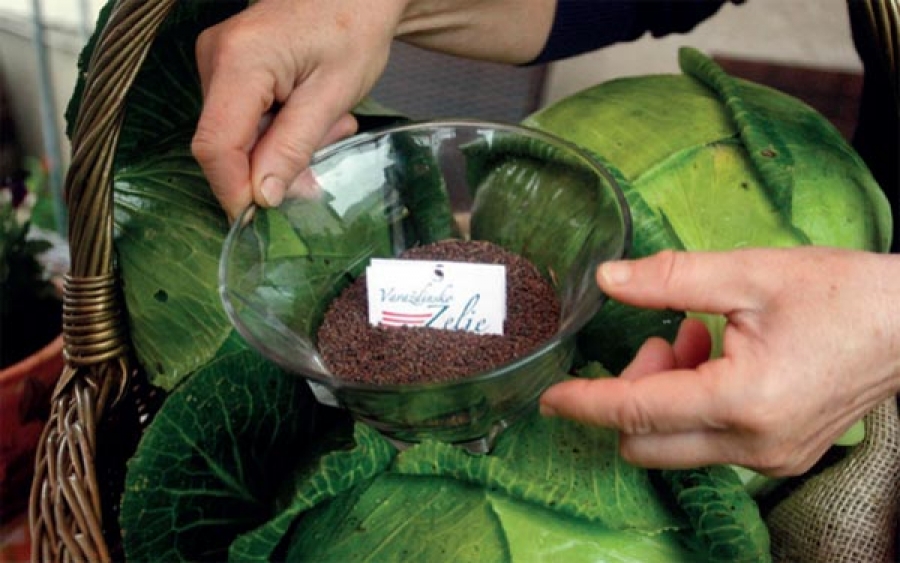 Varazdin cabbage (Varaždinsko zelje) and its seeds © Varazdin County Tourist Board
Varazdin cabbage (Varaždinsko zelje) and its seeds © Varazdin County Tourist Board
“The problem is not only in paying the large costs we have in controlling the sowing of our certified seeds,” Mrs. Cafuk told the journalist, expanding on the matter of the changing seed laws, “but also in increasing the costs we may have if we had to deliver all the seeds we produce for processing, as (will be) required by law.”
Mrs. Cafuk told the journalist she hopes that the ongoing and popular protests and petitions of associations that keep domestic seeds will lead to a positive outcome in regards to the proposed national changes. Of course, she was speaking on behalf of seed custodians and small producers all over Croatia. Having attained its European protection already, Varazdin cabbage and Mrs Cafuk's enterprises are already safe.
Varazdin cabbage is one of two kinds of Croatian cabbage protected by the EU
There are in fact two types of Croatian cabbage protected at the European level – Varazdin cabbage and cabbage from Ogulin. But, whereas Varazdin cabbage is protected in its raw, unprocessed form, the cabbage from Ogulin is protected as a product after its fermentation (it is made into what is sometimes called sauerkraut).
In 2015, when the application was made to European authorities to protect Varazdin cabbage, a notice of opposition was lodged from nearby Slovenia. Slovenia had added new cabbage varieties to its national variety register in 2012 under the names ‘Varazdinsko 2’ and ‘Varazdinsko 3'. Varazdin is a centuries-old town in northern Croatia.
The notice of opposition was discounted. The EU office responsible for protecting new varieties did not consider Varazdinsko 2 and Varazdinsko 3 to be appropriate names, as they suggested a link to a geographical area with which they had no direct connection and to that extent were confusing to consumers. With this impasse of international cabbage recognition finally overcome, Varazdin cabbage was granted its European protection.
Globalisation Threatens Croatia's Produce and Cuisine Via New Seed Laws
January 15, 2021 – The EU is being backed into a corner by the giants of globalised agriculture. Pre-empting a change in EU-farming directives, a new bill before the Croatian parliament seeks to regulate seed use for the country's farmers, putting at risk Croatia's distinct, regional produce and the country's famous cuisine. TCN interviews one of those leading the fight for Croatia's produce and cuisine.
Question: When is a tomato not a tomato? Answer: When it is a Croatian tomato.
Confused? Well, if you're from Croatia and never much left the country or region, you might be. But, if you're from western Europe or America and you've enjoyed a visit to Croatia, you'll know exactly what this means. As will any Croats who have emigrated to supposedly more 'developed' parts of the world. Food just doesn't taste the same in those places.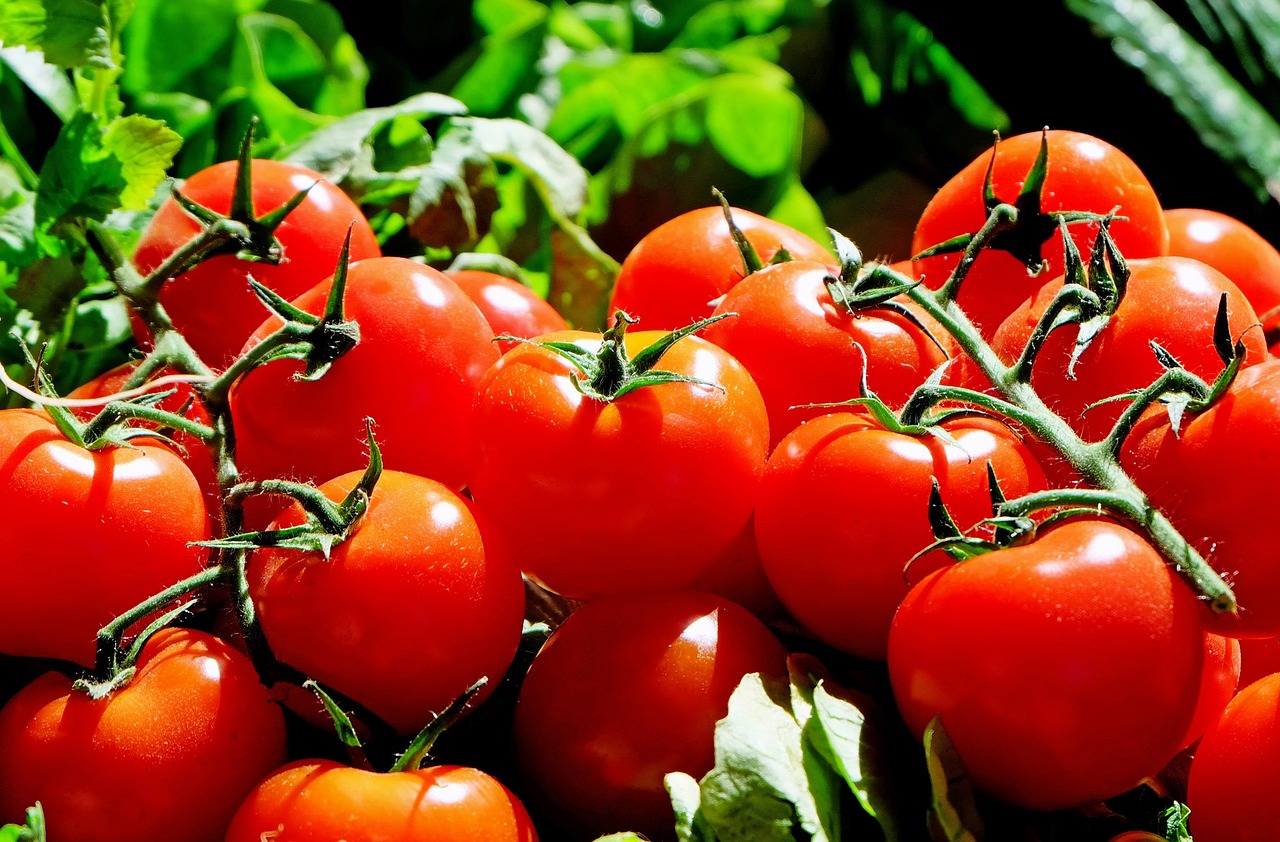 The efforts of small-scale producers, family afrmers and those preserving distinct, traditional crops help give Croatia's produce and cuisine its unique reputation and flavour
The efforts of small-scale producers, family afrmers and those preserving distinct, traditional crops help give Croatia's produce and cuisine its unique reputation and flavour
As TCN touched on in our recent feature about food prices in Croatia (and its impact on health), in the supermarkets of western Europe and in America, everything is available, all of the time. People live in a globalised marketplace where seasonal availability is meaningless when your country and its giant supermarket brands have the power to export from anywhere. But, though everything is always available in these supermarkets, not everything on display is what it seems to be.
In Dalmatia, they like to pride themselves on a generally very simple approach to cooking. Good olive oil, salt, maybe a dash of fresh lemon, garlic and parsley is all you need to make a meal sing. And the surprised, delighted faces of their customers tell them they are right. But, that's far from the full story. It is not the simple approach to seasoning, spicing and condiments alone that brings Dalmatian cuisine to life, it is the base ingredients themselves.
The blitva (chard) stewed in potato, that so easy yet unreproducible shredded cabbage salad, and the similarly simple tomato salad are spectacular to visitors because their main ingredients sing. They sing in way that vegetables bought in supermarkets in western Europe and America do not. They do so because, in Croatia, you can easily choose to eat locally grown, seasonal vegetables and fruits. And these taste a whole lot better than the industrially farmed products that line the shelves in other regions. That's why, in Croatia, a tomato still tastes like a tomato. Whereas a tomato from a supermarket elsewhere tastes like... nothing.
Countless unclassified regional varieties of vegetables and fruits, often grown by small-scale producers or on family farms (OPGs) help give Croatia's produce and cuisine this incredible reputation among visitors. But, as the multi-billion dollar, globalised industry of farming-without-season extends its grip around the world, it is the rights of these distinct farmers which is most at threat.
The European Union is attempting to change its laws and directives for the regulation of seed use within all member states. Pressured by the enormous powers of the global agricultural industry, and partially in an attempt to protect its farmers, it wishes to adopt new laws or regulations to replace extremely outdated earlier versions. Pre-empting this change, a law has been put before the Croatian parliament which seeks to regulate seed use in Croatia. It's a rather complicated piece of legislation and is currently only at the stage of proposal.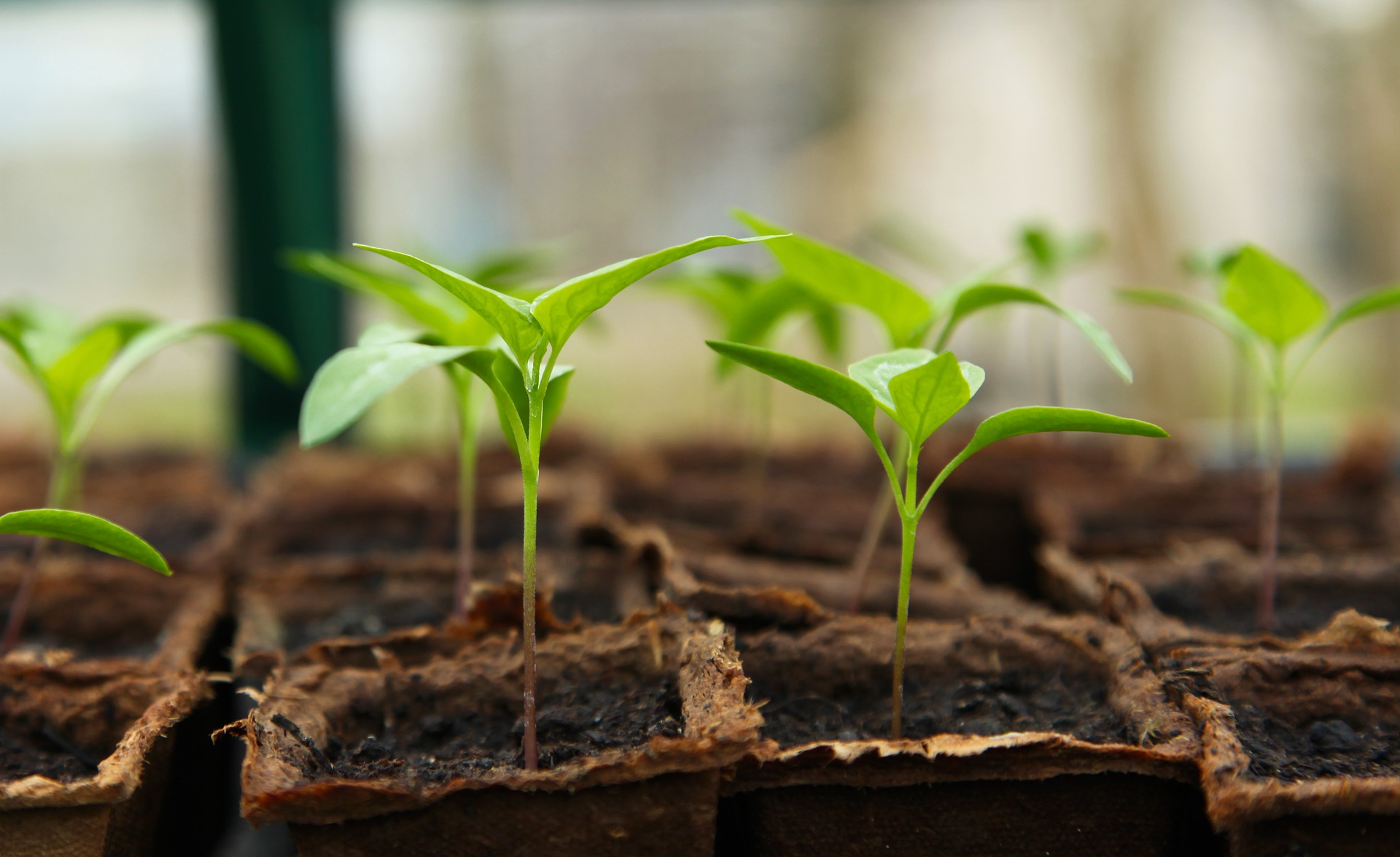 Changes to the laws of seed registration at a national and EU level, partly in response to the demands of the globalised agricultural industry, threaten Croatia's produce and cuisine
Changes to the laws of seed registration at a national and EU level, partly in response to the demands of the globalised agricultural industry, threaten Croatia's produce and cuisine
Monitoring the proposed changes are an army of environmental activists, small-scale producers, family farmers, gardeners and concerned citizens. Spearheaded by three organisations – The Croatian Organic Farmers Association, Life - an organisation of small scale farmers, and Bio-Garden, an organisation made up of gardeners and seed savers - a petition has this week been put before the Croatian parliament objecting to several elements of the proposed new legislation. Earning the support of some 77 Croatian organisations, including farming groups, cattle breeders, plant growers, a network of environmental organisations, permaculture initiatives, gardeners' organisations and even the Chamber of Agriculture, which includes all the farmers inside Croatia, the petitioning of parliament has galvanised many different people in its objection. They say that the proposed new legislation will remove the rights and freedoms of small scale producers and family farms to use their own seeds. This will radically affect Croatia's produce and cuisine.
It is doubtless that there is a worldwide trend, pushing everyone who grows towards buying seeds from globalised agricultural giants. And so, while the response from a broad group of those immediately concerned is impressive enough, awareness of the issue needs to extend much further. It should include every Dalmatian tavern owner and chef who delights a foreign visitor. It should include every single person in Croatia who buys food from a public marketplace. It should include everyone who takes pride in home cooking. It should include the entire tourism industry of Croatia and every visitor to Croatia who has ever enjoyed the food here. Because it is the very distinctive, authentic and traditional nature of Croatia's produce and cuisine that is at stake. Croatia is at real risk of losing the flavour of its food.
“Let me start 10, 000 years ago, when agriculture first started. That's when people learned how to save seeds,” explains Sunčana Pešak, a graduate of Zagreb University's Agriculture Faculty and a member of the three combined groups objecting to the proposed new law. “What these people learned was to save the seeds only from the best part of the harvest. That's what they would use to grow the next season. That's how farming always was. And, it's the way that we got all of the genetic diversity of all the grown foods we eat.”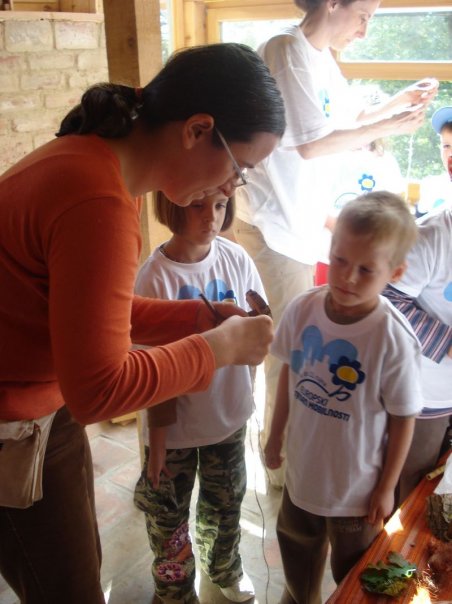 Sunčana Pešak, a graduate of Zagreb University's Agriculture Faculty and a member of the three combined groups defending Croatia's produce and cuisine by objecting to the proposed new seed law
Sunčana Pešak, a graduate of Zagreb University's Agriculture Faculty and a member of the three combined groups defending Croatia's produce and cuisine by objecting to the proposed new seed law
That way of saving seeds still exists. It's what all gardeners and small-scale farmers use. But, now there is something new – industrial farming. They have a different way of saving seeds. This involves a scientific approach to breeding and an industrial approach to growing and harvesting. This is problematic because only around 10 companies in the whole world own the rights to the scientifically manufactured seeds used on this scale of farming. They own the patent rights to the seeds they have created. And, they always want their profits from their seeds being used. These companies are the same ones who produce the chemicals used in industrial farming. They control most of the seed market all over the world.”
The current problems facing small-scale producers and family farmers, brought to a head by the proposed new law in Croatia, essentially come from a clash between industrial-level seed breeders, who control the global market and who demand royalties on their patented seeds, and farmers who just want to grow.
“The term 'Seed variety' itself is a commercial term,” explains Sunčana. “This is something that can be described and catalogued as distinct. All of the plants and their fruits needs to look the same to be identified as this variety. In this way, it can be marketed. But, for people who grow from their own indigenous seeds, in their own traditional ways, their crop is much more diverse.”
“For example, in Croatia, before seed breeding started, people just grew from their own seeds. They would exchange seeds among themselves and eventually each village had its own unique varieties of crops. You could go 20 minutes down the road and the carrots that were grown in the next village were completely different to the ones you grow in your own. Some of the carrots were big, some small, some looked weird, some took on a white colour because they mixed with the wild-growing varieties. Also, as a small producer, you might employ the use of a combination of seed. You plant it and when it grows you get completely different kinds of plants. People might have a winter mix and a summer mix. It ensures diversity in growing and in the diet. Even with grains, by planting a mixture you might ensure a harvest is more resistant to a pest or a weather intervention. One element of the proposed new law would prevent those kinds of mixtures being planted and we would lose completely the initiative and experience of farmers who do so.”
“They proposed new seed law seeks to regulate everything. The demands asked of small scale farmers under it are the same one asked of industrial-scale farmers – they are all placed on the same footing. If you want to use a seed of your own, you have to register those traditional varieties in a system that is currently undefined. Why? Just let people grow. It is their right.”
The groups objecting to the proposed new law in Croatia have found some allies in their fight. Small scale producers and the owners of family farms around the world have been battling against the monopolisation of the farming industry by a handful of globalised giants for many years. They are organised and have teams of lawyers working on their behalf. They have lent support to Croatia's collective of objectors in their fight, helping to point out that the new proposed law goes against the rights not only of EU citizens but against global human rights. "States shall recognize the rights of peasants to rely either on their own seeds or on other locally available seeds of their choice, and to decide on the crops and species that they wish to grow." says the United Nations Declaration on the Rights of Peasants and Other People Working in Rural Areas.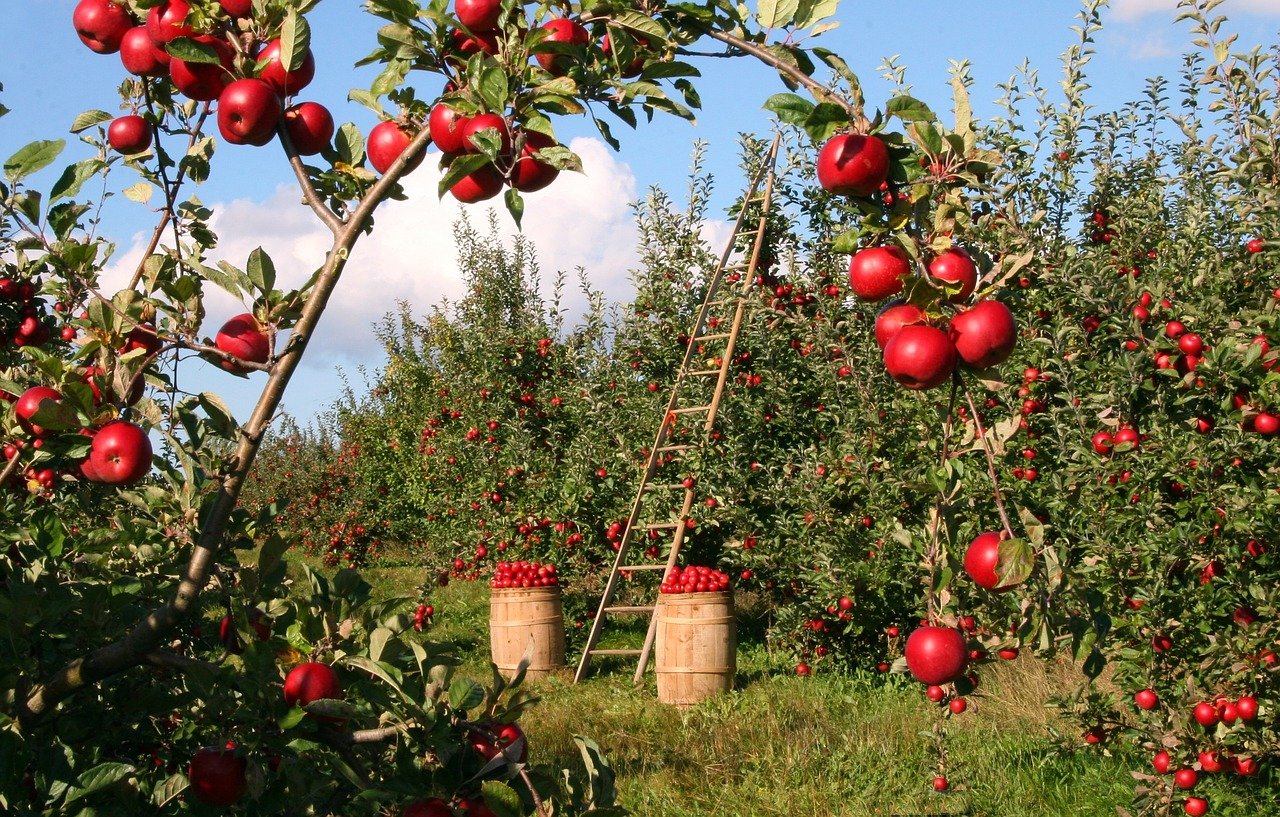 Traditional farming and time-honoured seed varieties help make Croatia's produce and cuisine unique in Europe. Croatia currently stands strong against the pressure from globalised agriculture to accept GMO produce. Can it stand as strong against its demands for new registrations of seeds?
Traditional farming and time-honoured seed varieties help make Croatia's produce and cuisine unique in Europe. Croatia currently stands strong against the pressure from globalised agriculture to accept GMO produce. Can it stand as strong against its demands for new registrations of seeds?
“The risk is huge,” says Sunčana, when asked what might happen to Croatia's produce and cuisine if the proposed new law passes without objection. “In just the last 100 years we lost 75% of our genetic biodiversity. That happened quite simply because people started buying seeds instead of saving them and then growing their own. All of the seeds that are now grown are quite alike. They take varieties that are proven to be the best, to grow to a maximum yield, to be resistant to pests and weather and which can grow successfully in all the different climates of the world. These are varieties that are standardised, well suited to industrial farming – they all ripen at exactly the same time, assisting mechanised harvesting. But, that logic does not always suit small scale farms, where you might need to grow from seeds whose plants reach maturity over an extended period. This gives you many weeks of opportunity to harvest and to sell on different market days.”
But, it isn't just a loss to the convenience of family farmers that would be enforced by the new law. Nor it is solely a matter of losing the tastes of traditional varieties of vegetables and fruits within Croatia's produce and cuisine. The loss to our collective health from this massive reduction in the variety of genetic biodiversity in our diet is currently unknown. Future effects could be catastrophic. Not only that, we could rapidly be losing crop varieties that might better adapt to the new conditions that will be imminently brought about by climate change.
“People with small farms already have enough trouble dealing with bureaucracy and administration. There's no way that all of Croatia's growers will go through the timely ordeal of registering every seed we have,” explains Sunčana, detailing another stipulation that lies within the proposed new change of law. If growers don't wish to register their own distinct varieties - which may have been preserved within their families or communities for generations, they always have the option of going to the National seed bank and taking from there, seeds that have already been registered. Unfortunately, only 27 such seeds exist within Croatia. And the seed bank can only supply such a small amount that it may take a small scale farm several years to build up the supply they need for their business.
The proposed new change of law in Croatia is extremely complicated, as will be the procedures and demands on growers if it passes. The change in seed regulation at an EU level could be similarly restrictive to non-industrial farmers and growers. But, though it is the Croatian government – and then the lawmakers of the EU – who will be addressed by the objections of farmers, growers, gardeners and biodiversity organisations, it is ultimately the profits of a small cabal of globalised and increasingly industrial agricultural/chemical giants which lie at the heart of the demand for change. They are a force of near incomparable strength.
On the surface, the issue of seed regulation might appear to really matter only to those who have a small to medium-sized business growing tomatoes or similar. But, the reality is that this issue concerns us all - everyone who puts a tomato on their fork, on their children's plate or on the table of an overseas visitor who will never forget the distinct flavour of Croatian food. It is the flavour of the future, and the reputation of Croatia's produce and cuisine, for which the fight is currently being made.
Direct Help: Order From a Petrinja OPG, Small Producer, Family Farm
January 9, 2021 – The area affected by the devastating earthquake of 29 December 2020 is mostly rural. People there live off the land. They employ others at family farms and as small scale producers. Ordering from a Petrinja OPG or one from the surroundings directly helps families and the economy of the earthquake-affected area, so here's a list detailing them
Alongside the outpourings of sympathy and promise of prayers, since the large earthquakes of December 2020 struck Sisak-Moslavina County, Total Croatia News has been inundated with requests from regular readers and other asking how they can directly and effectively help. TCN has tried to answer all enquiries the best we can and has striven towards directing donors to the best-placed outlets.
Certainly, the rebuild of the communities and economies in places like Petrinja, Glina, Sisak and hundreds of surrounding villages, hamlets and settlements will take months, even years. As TCN discovered after we visited the affected region one day after the earthquake, this area is predominantly rural. People here live off the land, from agricultural endeavours. Small producers and family farms make up much of the economy. In a year where such producers have been hard hit by travel restrictions and other aspects of the pandemic, the livelihoods of many have been shattered by the subsequent earthquake.
In a pro-active, helpful and exhaustive piece of data collection, writer Antonia Dobrota and the team at Croatian-language tourism portal cimerfraj have over recent days come up with an inspired suggestion of how [people can directly help the economies and people of the affected region. They have published a list of as many small producers, family farms and Petrinja OPG producers, plus those in surrounding areas.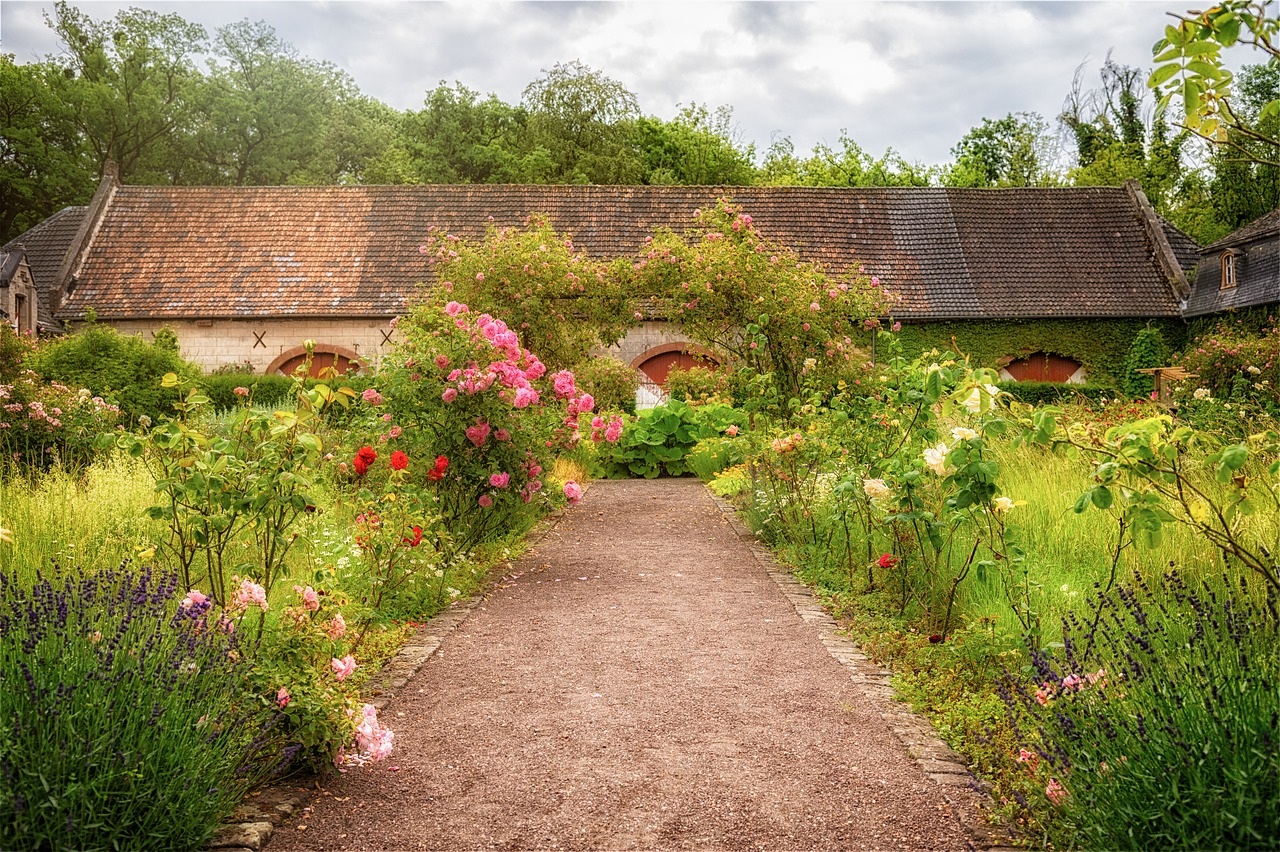
By ordering food, produce and goods like pottery from this list, people can spend their money directly within the economies of the affected area – no suspicion, no doubt, no middlemen, no staffing costs deducted. It is an inspired decision to construct (and continually update) such a list. Bravo, Antonia and cimerfraj! Several Croatian-language media outlets have since republished the list. Total Croatia News is pleased to do so in English. We warmly encourage its use, not only now, but in the months that follow.
Being small producers and family farms, most of the producers below are not only vital to others in the local communities (by offering employment opportunities), their goods are almost exclusively organic and produced in a traditional, eco-friendly manner. Any orders should be submitted with the utmost confidence.
(OPG is a designation in Croatia that is given specifically to family farms and small, community producers)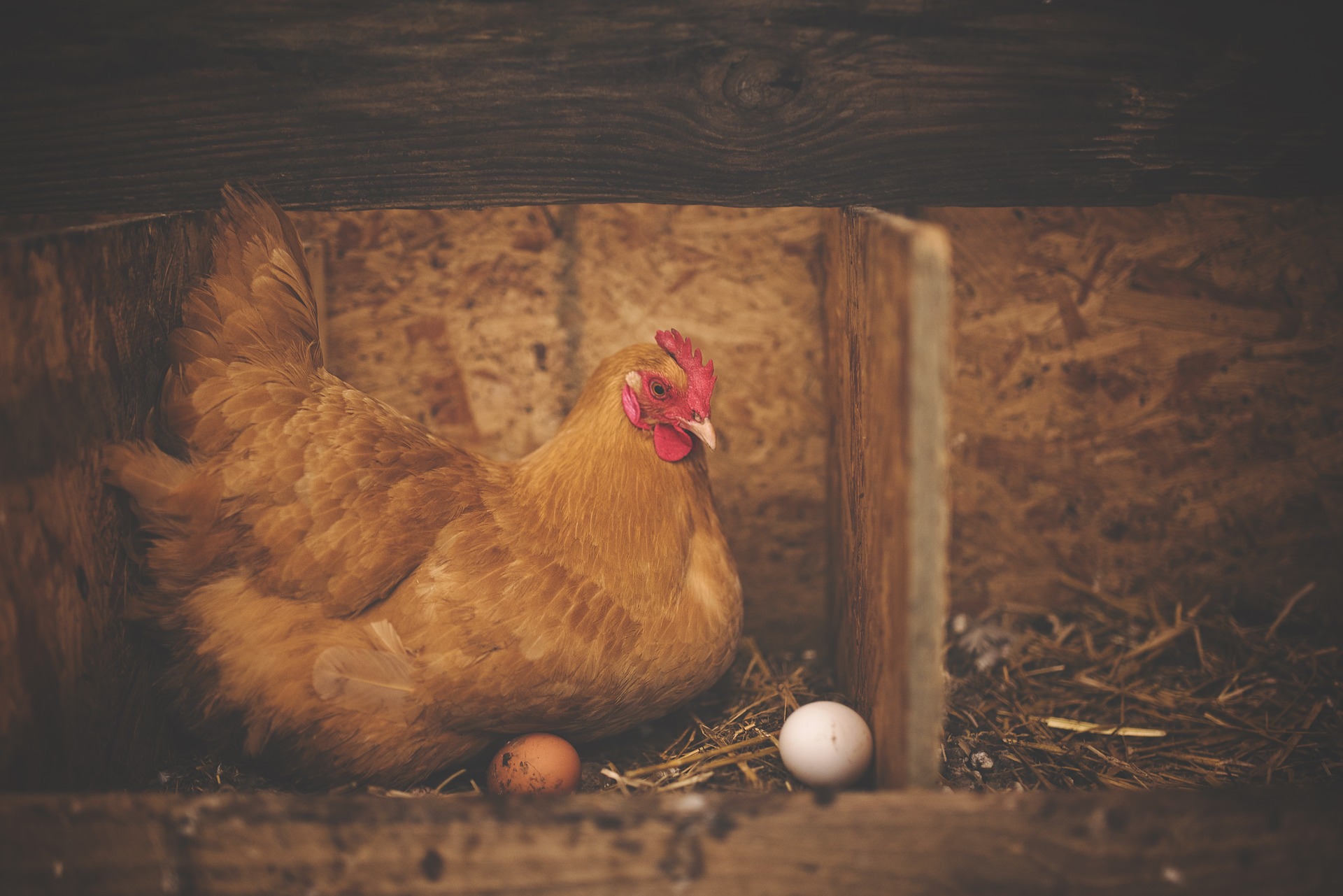
OPG Mladen Tonković
Gornji Vidusevac 2a, Glina
095 8069 822
This email address is being protected from spambots. You need JavaScript enabled to view it.
Products: hazelnuts
OPG Predrag Đurđević
Stjepana Radića 168, Petrinja OPG
091 5853 717
This email address is being protected from spambots. You need JavaScript enabled to view it.
Products: honey, bee products
OPG Vicencinović Hergouth
Stari put 28, Gornja Gračenica
098 9817 696 This email address is being protected from spambots. You need JavaScript enabled to view it.
Products: liqueurs, fruit brandies
OPG Naglić
Kompator 34, Velika Ludina
091 5437 949
This email address is being protected from spambots. You need JavaScript enabled to view it.
Products: organic fruit
OPG Pčelarstvo Crneković
Kornatska 20, Sisak
091 8913 248
This email address is being protected from spambots. You need JavaScript enabled to view it.
Products: honey, bee products
OPG Tomislav Marcinek
Mate Vezmara 25, Voloder
098 9043 165
This email address is being protected from spambots. You need JavaScript enabled to view it.
Products: sheep, chicken and rabbit breeding
Family farm Zeljko Perkovic
Timarci 117, Sunja
091 5887 753
This email address is being protected from spambots. You need JavaScript enabled to view it.
Products: sheep
OPG Oljačić
Dragutina Benka 12, Petrinja OPG
098 1861 397
This email address is being protected from spambots. You need JavaScript enabled to view it.
Products: seasonal fruits and vegetables
OPG Horžić
Vladimira Nazora 26, Sunja
099 4600 210
This email address is being protected from spambots. You need JavaScript enabled to view it.
Products: meat and eggs
OPG Abramović
Franje Zuzeka 17, Glina
098 638 455
This email address is being protected from spambots. You need JavaScript enabled to view it.
Products: mulch, honey and beekeeping products
OPG Leci
Tadije Smičiklasa 34, Petrinja OPG
091 1502 732
This email address is being protected from spambots. You need JavaScript enabled to view it.
Products: chokeberry / ariona berry and fruit jams, chokeberry / ariona berry juice
OPG Mikliš
Desno Trabarjevo 39, Martinska Ves
098 615 011
This email address is being protected from spambots. You need JavaScript enabled to view it.
Products: chickens, ducks, turkeys, chickens, eggs
OPG Ivanković
Martinska Ves 124, Martinska Ves
095 3992 217
This email address is being protected from spambots. You need JavaScript enabled to view it.
Products: hazelnut, beans, orange sweet potato
OPG Ćordaš
Donji Klasnic 111, Glina
091 8843 182
This email address is being protected from spambots. You need JavaScript enabled to view it.
Products: teas, jams, chokeberry / ariona berry products
OPG Marčinko
Dražena Petrovića 18/2, Petrinja OPG
099 7235 037
This email address is being protected from spambots. You need JavaScript enabled to view it.
Products: chokeberry / ariona berry, various types of honey and juices, eco buckwheat flour
Family farm Jure Kolarić
Bobovac 321, Sunja
095 8158 505
Mini cheese factory
Products: Mini cheese factory
OPG Džakula
Sjeverovac 23, Sunja
091 2048 169
This email address is being protected from spambots. You need JavaScript enabled to view it.
Products: veal, pork, fresh meat and cured meat products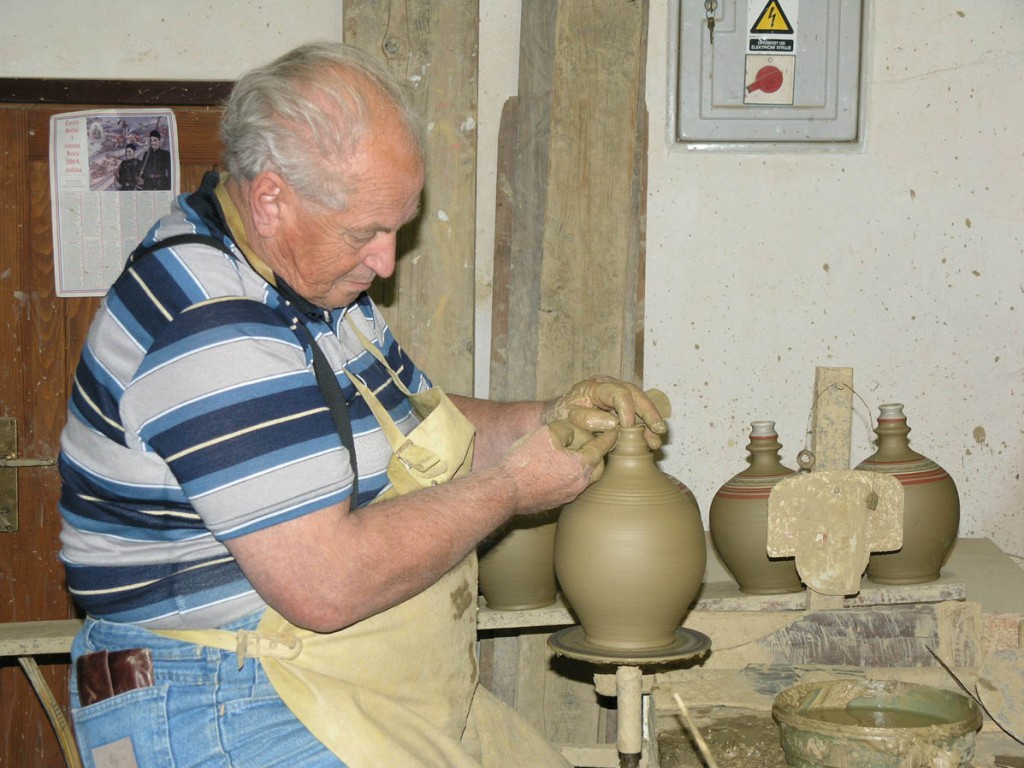 Pottery is a traditional craft in the area of Petrinja © TZ Petrinja
Pottery is a traditional craft in the area of Petrinja © TZ Petrinja
Pottery Matej Stanešić
Ljudevita Gaja 30, Petrinja OPG
044 816 308
This email address is being protected from spambots. You need JavaScript enabled to view it.
Pottery Val
Slavko Kolar 2, Petrinja OPG
0912340 060
This email address is being protected from spambots. You need JavaScript enabled to view it.
Cacti Beslic
Zagrebacka 185, Duzica
044 752 273
Products: cacti, succulents, aloe, carnivorous plants
Vrtlarija Gadžić
Stjepana Radića 324, Petrinja OPG
099 4040 992
gardener-gadzic
Products: flower and vegetable seedlings, perennials, roses, ornamental and spice plants
Eko-Pčela & OPG Rožić
Slatina 86, Petrinja OPG
098 1727 187
Products: organic honey, grain, rye, buckwheat, oats, fruit seedlings
Beekeeping Priljeva
Mije Srnaka 40, Petrinja OPG
098 9748 434
honey and beekeeping products
OPG Jela Grubišić
9 Gromova Street, Petrinja OPG
098 9454 211
Products: chickens, eggs
OPG Josipa Gadžić
Franza Wagnera 92, Petrinja OPG
098 9454 211
Products: flower and vegetable seedlings
OPG Polimac
Gornja Mlinoga 44
044 823 117/098 1373 107
Products: lambs and sheep
OPG Bunjan Dalibor
Sisačka 50 a, Petrinja OPG
099 2540 815
This email address is being protected from spambots. You need JavaScript enabled to view it.
Products: seasonal fruits and vegetables
OPG Champignon
Đurđica Bočina, Žabno 16, Sisak
099 8196 665
This email address is being protected from spambots. You need JavaScript enabled to view it.
Products: different types of mushrooms
OPG Trsoglavec Štefica
Sibic
098 286 558
Products: cheese, cream, butter and other dairy products
OPG Radošević Marijana
Stromarova 9, Petrinja OPG
099 2557 140
Products: honey and bee products
OPG Dario Paropatić
091 5723 320
Livestock breeding, buying and selling
OPG Paropatić Dejan
099 6597 155
Buying and selling live cattle
OPG Dvorneković
Milana Makanca 25, Petrinja OPG
091 1814 368
Products: blackberry wine, red currant wine, honey, propolis and fruit liqueurs
OPG Šipuš
Preloscica 92, Sisak
097 6674 912
Products: dairy products, cheeses of different flavors
OPG Vuletić Željka
Gornja Mlinoga 39, Petrinja OPG
098 1847 750
This email address is being protected from spambots. You need JavaScript enabled to view it.
Products: jams, marmalades and juices from pumpkin, chokeberry / ariona berry and other fruits
OPG Priljeva Stojan
Donje Seliste, Glina
044 880 353/099 7403 650
Products: cheese and dairy products
OPG Lovro Lenac
A. Tomulića 10, Hrvatska Kostajnica
099 5127 643
This email address is being protected from spambots. You need JavaScript enabled to view it.
Products: pumpkin and chestnut
OPG Tamara Sekereš
Osekovo
091 7914 230
This email address is being protected from spambots. You need JavaScript enabled to view it.
Production: Beekeeping. 8 different types of honey, honey mixtures, propolis, delivery for Zagreb
OPG Ivica Vancas
Nebojan 134, Petrinja OPG
044 751 034/099 8048 076
Production: cereals (except rice), legumes and rapeseed oil
OPG Finka and Zdravko Oršulić
Matije Antolca 141, Petrinja OPG
095 9033 084/095 5863 284
Products: vegetable and flower seedlings, flowers and herbs
Family farm Snježana Oršulić
135 Gromova Street, Petrinja OPG
095 9074 512
Production: flower and vegetable seedlings
OPG Kata Čiča
Donji Viduševac, Glina
098 9945 323
Products: eco hazelnuts and free-range eggs
Family farm Slavica Jurić
Donja Budicina 22, Petrinja OPG
091 7220 520
Products: free-range eggs
OPG Mladen Bjelac
Ive Maline 84, Petrinja OPG
098 601 191
This email address is being protected from spambots. You need JavaScript enabled to view it.
Products: hazelnuts
OPG Stevo Zec
Hrvatska Kostajnica
091 7267 749
Products: honey
OPG Novakovic Milan
Gornji Bjelovac 15, Donji Kukuruzari
044 856 073
This email address is being protected from spambots. You need JavaScript enabled to view it.
Products: home-made sausages and bacon, pork fat
OPG Nikola Petković
Kralja Tomislava 73, Glina
091 7691 460
This email address is being protected from spambots. You need JavaScript enabled to view it.
Products: blackberry wine, blackberry liqueurs, raspberries, cherries, walnuts, rakija, jams, rural tourism
OPG Petrinjčica Davor Lugomer
Luščani 115
091 4000 407
Borovnice Petrinjčica
Products: blueberry cultivation from 15.6 to 10.8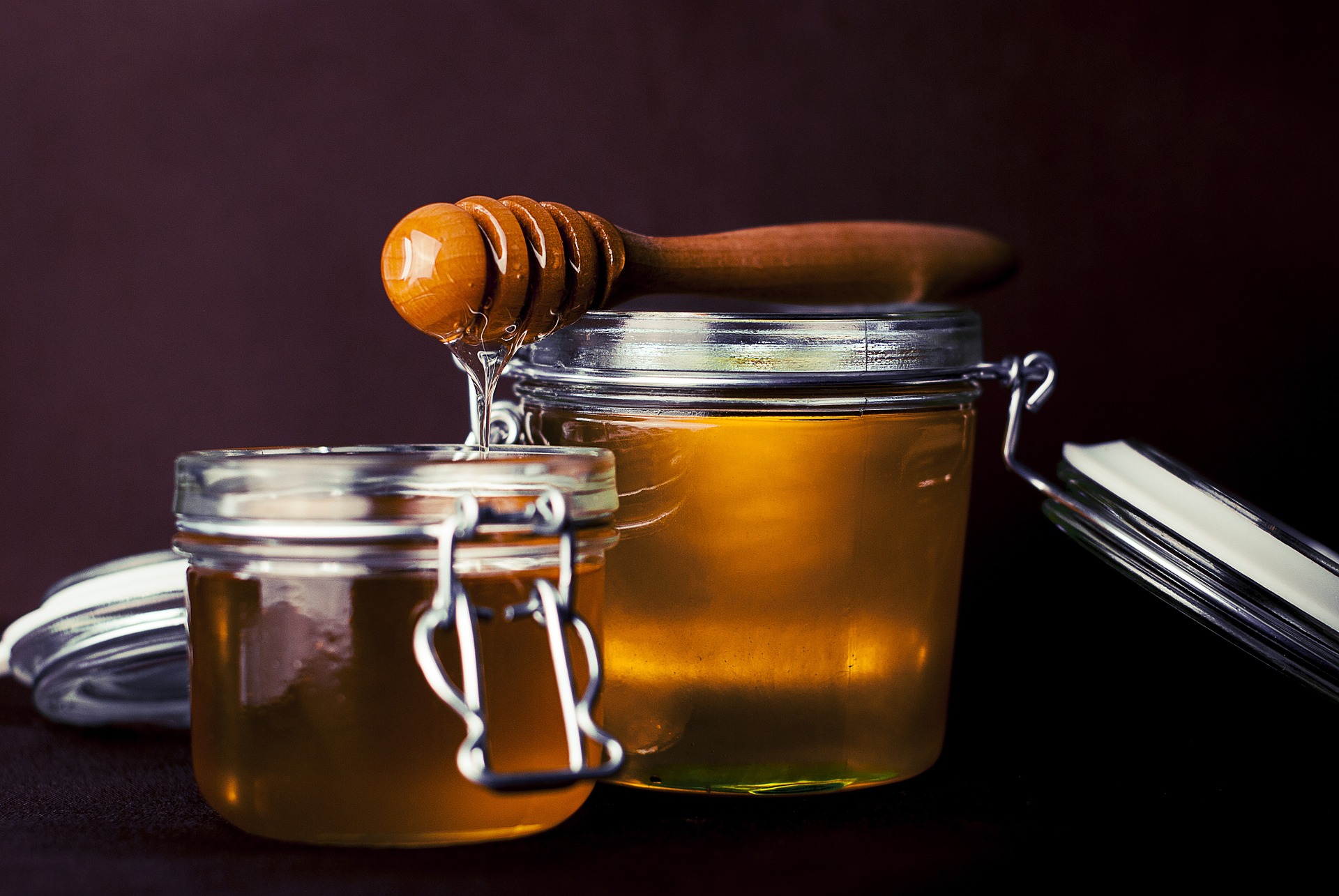
OPG Križić
Matije Antolca 1, Petrinja OPG
095 3924 280
Products: vegetables and bee products
OPG Marica Rožić
Vratečko 23, Petrinja OPG
091 6141 708
Products: livestock (cows, horses, chickens), milk production
OPG Naglić Kristina
Hrvatskog proljeća 30, Glina
099 2309 051
This email address is being protected from spambots. You need JavaScript enabled to view it.
Products: lambs, wine, brandy, liqueurs and Christmas trees
OPG Nikola Navijalić
Kralja Tomislava 1 branch 5, Moscenica
098 9729 671
Products: strawberries, vegetables, honey
OPG Miroslava Jović
Brezovo Polje 38, Glina
099 8299 458
Products: veal
OPG Josip Petrović
Brezovo Polje 95, Glina
099 2153 129
Products: pork, lamb, calves and young goats
OPG Dragan Jović
Brezovo Polje 95, Glina
099 2153 129
Production: calves
OPG Marijan Glušić
Antuna Mihanovića 1a, Petrinja OPG
095 9099 305/091 5251 497
This email address is being protected from spambots. You need JavaScript enabled to view it.
Products: apples and apple juice
OPG Josip Starešinović
Strašnik 109, Petrinja OPG
099 8759 237
This email address is being protected from spambots. You need JavaScript enabled to view it.
Products: milk, cheeses
OPG Milić Perica
Volinja 3, Dvor
099 5904996 / 098 779 214
This email address is being protected from spambots. You need JavaScript enabled to view it.
Products: free-range eggs, beef, composting, potatoes
OPG Vesna Antunović
Don Ante Lizatovica 5, Donji Kukuruzari
098 1902 554
This email address is being protected from spambots. You need JavaScript enabled to view it.
Products: honey, bee products
Family farm Vladimir Vujčić
Velika Gradusa 63, Sunja
091 7231 393
This email address is being protected from spambots. You need JavaScript enabled to view it.
Products: lambs
Family farm Vesna Pranjic - Marincic Winery
Frankopanska 18, Sisak
(new address: Jazvenik 8e, Sela)
0917315678/0915892346
This email address is being protected from spambots. You need JavaScript enabled to view it.
Products: wine, viticulture and winemaking
OPG Anita Zrnić
Bestrma 116, Sunja
098 1829 823
This email address is being protected from spambots. You need JavaScript enabled to view it.
Products: lamb, young goats
DVORSKA KOŠARICA – association of OPGs
091 9299 888
This email address is being protected from spambots. You need JavaScript enabled to view it.
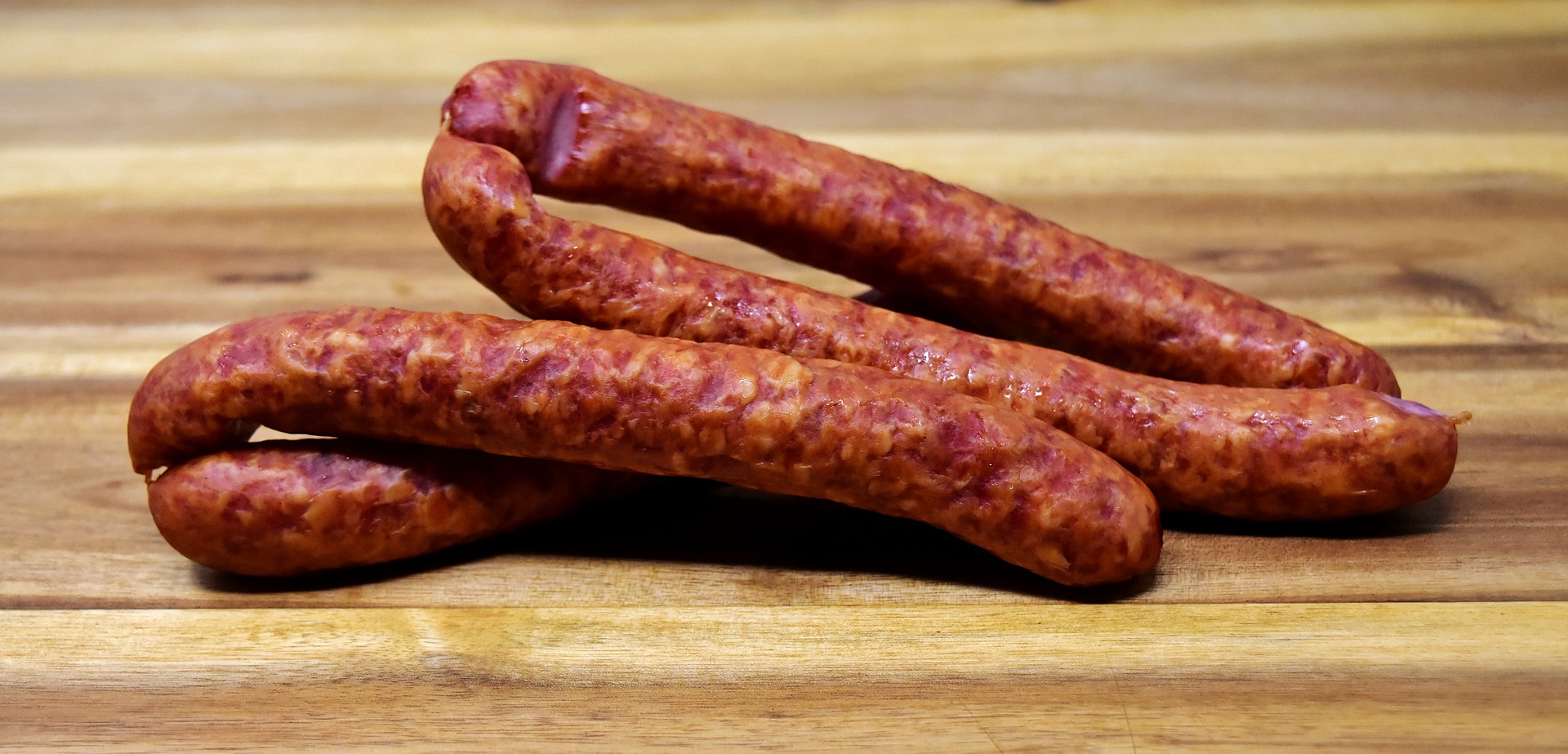
OPG Zoran Simić
Donji Javoranj 38 Dvor
Products: breeder of indigenous, protected breeds of pigs, sheep, goats and donkeys - live animals, meat and meat products - sausages, lard, čvarci (fried pork rind – pork scratchings), bacon
OPG Milko Nišević Kepčije
Products: smoked and fresh cheeses, organic breeding of calves, heifer cows, sheep and lambs
OPG Angela and Štefan Abramović
Products: pumpkin oil, flour, seeds, goat cheese, yogurt, fresh seasonal fruits and vegetables
OPG Milan Janković
Uncani 75, Dvor
0996585104
This email address is being protected from spambots. You need JavaScript enabled to view it.
Products: flaxseed (linseed) oil, pumpkin oil, pumpkin protein, flax seeds
OPG Kokin dom
Petrinja OPG
095 7972 064
Production: chickens
OPG Blaženko Anđić
Tomislava Ivkaneca 8a, Petrinja OPG
Products: honey and bee products, chokeberry / ariona berry products
OPG Jelić Ivka
Gajeva, Petrinja OPG
Available in online shop Zelena Kuca
Products: Collective of small producers of domestic and ecological products from Petrinja and its surroundings
Family farm Dijana Vukovic
Novi Farkasic 48
099 2862 510
Products: pumpkin oil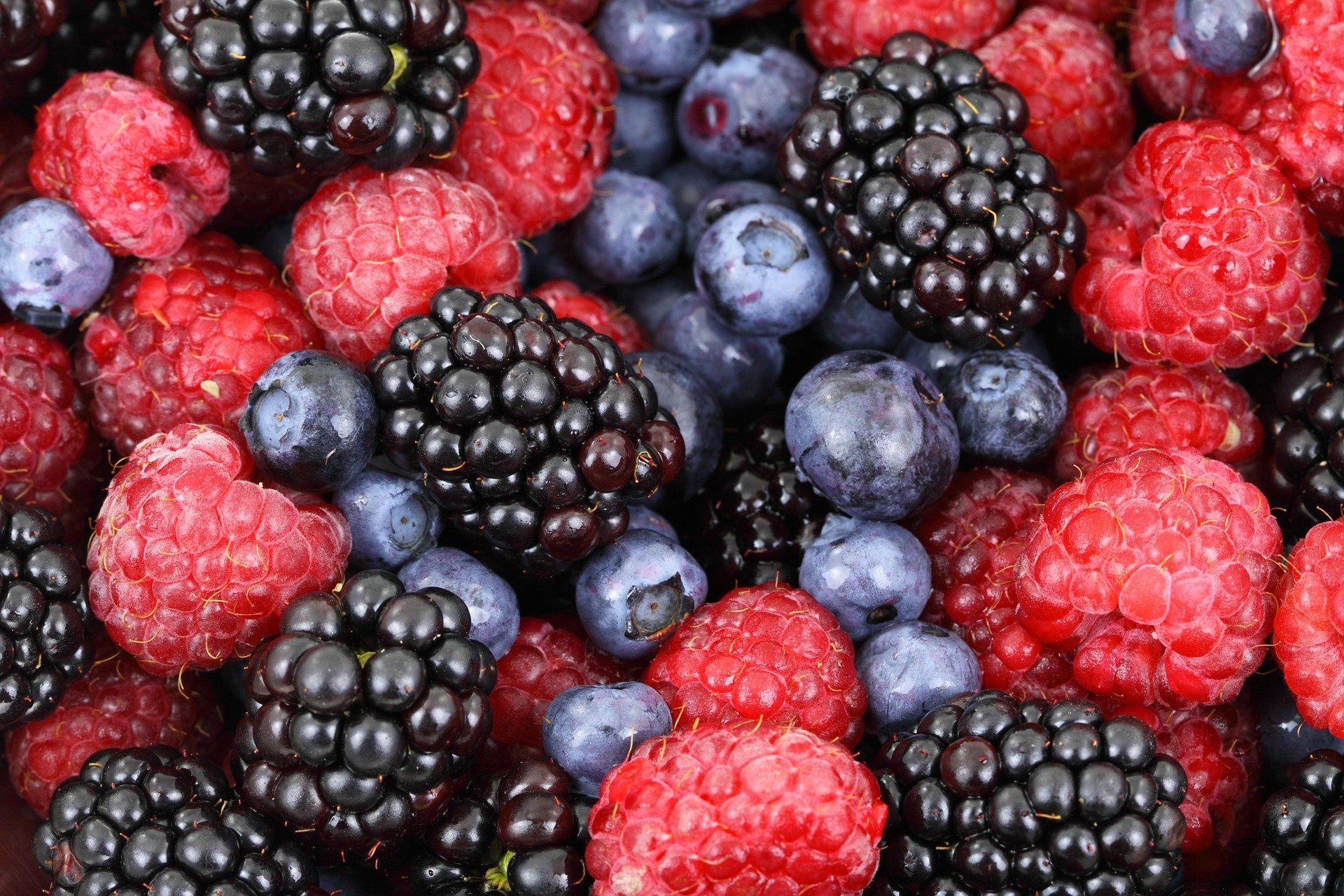
OPG "Majčina dušica" Nada Tanković
Petrinja OPG
091 7346 973
This email address is being protected from spambots. You need JavaScript enabled to view it.
Products: spices, herbs and medicinal herbs, berries (currants, raspberries, blackberries)
OPG Barišić Ivan
Mececani, Donji Kukuruzari
091 6460 664
This email address is being protected from spambots. You need JavaScript enabled to view it.
Products: vegetables, fruits, conserved fruits and vegetables, sheep and beekeeping
OPG Mara Dejanović
Deanovići 12, Petrinja OPG
098 9424 409
Products: dairy products, meat products, eggs, onions and other vegetables, lambs, pigs, calves
OPG Josip Jurković
Desni Degoj 20, Glina
098 9830 900
This email address is being protected from spambots. You need JavaScript enabled to view it.
Products: eggs, potatoes, sweet potatoes, onions
OPG Mira Cavic
Batinova Kosa 59, Topusko
099 7987 820
Products: free-range eggs, honey, potatoes, onions, lard, cleaned (plucked and butchered) chickens, geese and ducks, lambs
OPG Špiljar Nikola
Novi Farkasic 43, Petrinja OPG
098 9721 470
Products: cow-calf, sheep, pigs and horses
OPG Ivica Klobučar
Jurja Fratrovića 13, Glina
This email address is being protected from spambots. You need JavaScript enabled to view it.
Products: sheep breeding and free-range eggs
OPG Borojević
Trgovi, Dvor
091 9158 544
This email address is being protected from spambots. You need JavaScript enabled to view it.
Products: certified organic production and processing of hazelnuts (shelled hazelnuts, hazelnut oil, hazelnut flour, roasted hazelnuts) and buckwheat
OPG Severin Jurić
Lijevi Odvojak 33 A, Brest Pokupski
099 5053 160 / 098 551 324
This email address is being protected from spambots. You need JavaScript enabled to view it.
Product: hazelnuts
Cimerfraj add the following notes:
This list includes all small producers and family farms from the earthquake-affected settlements and the surrounding areas. At the time of compiling the list, we do not know whether these manufacturers are harmed or not, nor do we consider this important. We believe that synergy is necessary in order to initiate the balanced development of favorable existential opportunities for life in this area.
Due to some parts of the area currently being poorly covered by phone and internet signal, some of the manufacturers are easier to contact by text message, SMS or WhatsApp.
The list is still being updated. If you know of a domestic manufacturer from the affected area who is not currently included, please send all relevant details to This email address is being protected from spambots. You need JavaScript enabled to view it.
Croatia Agriculture Production Grows by 1 Billion Kuna in 2020
January 7, 2021 – Within the last month, TCN was pleased to report that Croatia agriculture and food exports had jumped considerably in 2020, while imports of the same had fallen. The success of Croatia agriculture in 2020 has been confirmed by a new report which shows that the industry has grown by almost one billion kuna in a year
The success of the Croatia agriculture sector in 2020 was detailed in a report by Smarter, a consulting company specialising in the agriculture and food industry. Vecernji List published their coverage of the report in recent days.
In the report, figures show that the value of Croatia agriculture production increased by 4.7% compared to the same period during the previous year. Croatia agriculture revenue, therefore, jumped from 17.9 billion HRK to 18.8 billion, an increase of almost one billion kuna. The 12 month period of Croatia agriculture used to compile the figures ends in November within each comparative year.
Figures show that Croatia agriculture experienced excellent results in crop production (wheat, soybeans, corn, etc). This contributing evidence goes some way to explain the good news TCN reported back in December that, according to the country's Central Bureau of Statistics, the total value of Croatia agriculture and food exports in the period from January to September 2020 amounted to 1.7 billion Euros, an increase of 5 percent from the same period in 2019. Within the same period, the value of agricultural and food imports into Croatia was 2.5 billion Euros, a decline of 7.3 percent from last year.
The result of the 2020 successes in Croatia agriculture has been a reduction in the foreign trade deficit by 26.6% in the agriculture and food sector. The improvement in 2020 is being partly attributed to grants and payments under the Rural Development Program (RDP), which have grown significantly creating a stimulus that in part affected the growth of the value of production and the amount that was produced. Increasing profits within the country's agriculture sector is being catalysed by adding value to the raw product which is grown here, via processing and other methods, which happens prior to export taking place.
Croatia Agriculture and Food Exports Jump in 2020, Imports Fall
December 19, 2020 – A surprising success story in a difficult year as Croatia agriculture and food exports jump in 2020, while imports of the same have fallen
Good news from any place is welcome in this most difficult of years. According to provisional data from the country's Central Bureau of Statistics, the total value of Croatia agriculture and food exports in the period from January to September 2020 amounted to 1.7 billion Euros, an increase of 5 percent from the same period in 2019. Within the same period, the value of agricultural and food imports into Croatia was 2.5 billion Euros, a decline of 7.3 percent from last year.
The success of Croatia agriculture and food exports in the period means that the country's trade deficit has decreased by huge 26.6 percent compared to the same period last year. With this year's findings taken into account, the trade deficit now stands at 758.8 million Euros.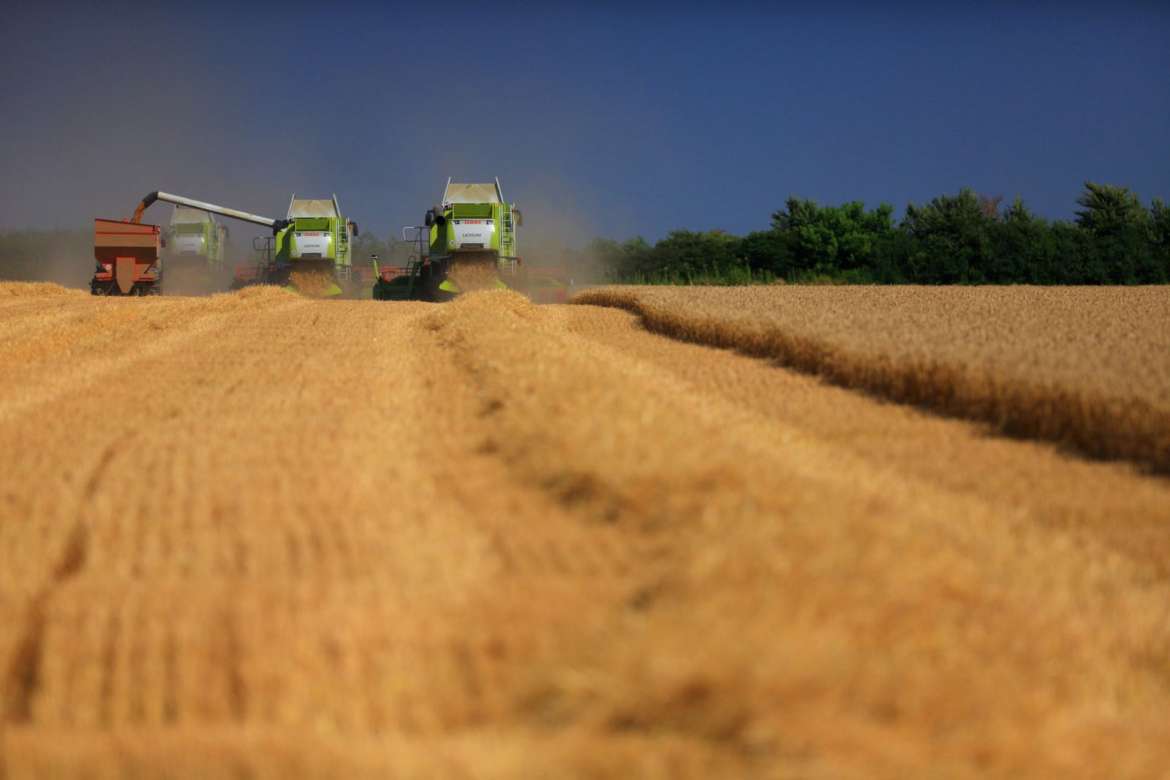 © Romulić & Stojčić
© Romulić & Stojčić
Croatia agriculture and food exports covered 69 percent of total imports this year, an increase of 8.11 percent. A total of 15.86 percent of all exports from the country come from the Croatia agriculture and food exports sector.
The most important item of production within the sector is corn, which accounts for 5.4 percent of all Croatia agriculture and food exports.
From January to September 2020, the most significant products in exports were: cereals (205.4 million Euros – a growth of a huge 62.6 million Euros); various food products (168.1 million Euros – including manufactured/processed foods like sauces, soups, ice cream, sugar products); fish and other seafood (a huge 147.4 million Euros – showing a growth of 14.5 million Euros); cereals, flour, starch or milk products; confectionery products, including chocolate (135.9 million Euros – a growth of 13.8 million Euros), and tobacco-related products (122.6 million Euros). TCN recently took a closer look at the successful and well-established Croatian chocolate industry
Other successes within 2020 Croatia agriculture and food exports were live animals, with an increase of 10.1 million Euros, and the residue and waste of the food industry, which is exported to go into prepared animal foods. The latter saw an increase of 8.6 million Euros.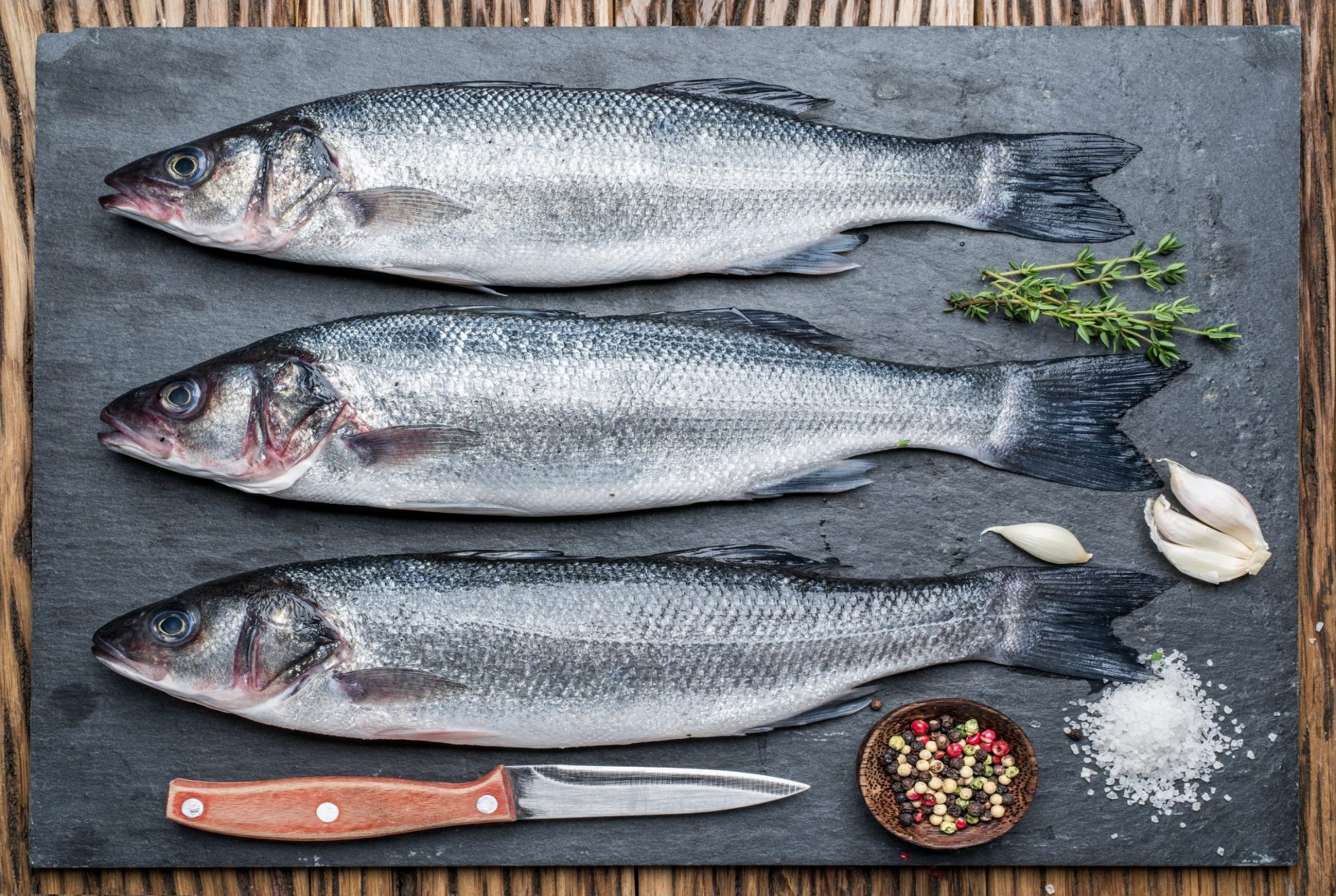
So far this year, Italy was one of the most important destinations for Croatia agriculture and food exports. Their total consumption of Croatia agriculture and food exports was 300.8 million Euros, which amounts to 17.76 percent of Croatia's exports in the sector. Croatia agriculture and food exports to Italy increased by 21.9 percent this year, while imports from Italy to Croatia in the same period was 263 million Euros, a decrease of 16.6 percent on 2019. This creates a surplus of 37.6 million Euros.
The most important Croatia agriculture and food exports to Italy are maize, wheat and soybeans, tobacco-related products, sea bass (brancin) and bream (orada).
For the last five years, Croatia agriculture and food exports top consumer has been Germany. For the past seven years, Germany has also been the country from which Croatia has imported the most.
39 New Subsidy Agreements Valued at HRK 42 mn Sent to Farmers
ZAGREB, November 20, 2020 - The Paying Agency for Agriculture, Fisheries and Rural Development has sent 29 new agreements to farmers around Croatia related to two measures from the Rural Development Programme for an acceptable investment amount of almost HRK 90 million, for which HRK 42 million has been secured in subsidies.
The Ministry of Agriculture said in a press release that 20 agreements relate to cattle breeding with subsidies valued at HRK 33.5 million, while the total acceptable amount of investments amounts to more than HRK 71 million.
Nine agreements for which subsidies valued at HRK 8.6 million have been made available relate to managing and handling organic fertiliser, while the value of the total investments amounts to HRK 18.6 million.
Projects submitted for support under operations 4.1.1. and 4.1.2 of the Rural Development Programme can amount to €500,000 (HRK 3.75 million) and €300,000 (HRK 2.25 million) respectively, with subsidies covering 50% of the acceptable costs.
Croatia Boasts Great Farming Potential
ZAGREB, November 1, 2020 - Croatia's farming sector has great potential and for exploiting all those possibilities for growth it is necessary to ensure transfer of new know-how and technologies and to build processing capacities, the Smarter company has said.
The most important export plant in the farming sector, maize, was sown on 258,000 hectares of land this year, and the average yield per hectare is 8.8 tonnes this season. As a result, this year's harvest of this cereal will come to 2.27 million tonnes.
The drop in cattle breeding has also reduced demand for maize, and consequently, the area sown with maize has shrunk over the last ten years by 18%. However, the better yield has reduced the decline in the amount of harvested maize.
When it comes to this cereal and yield per hectare, Croatia has been above the EU average in the last three years. It is now on par with France, however it is still far from Austria where the maize yield is 12 tonnes per hectare, says Smarter.
Croatia's sunflower and soybean production above EU average
When it comes to sunflower, Croatia tops the EU ranking in terms of the yield of this crop in the last five years. In the country, the best sunflower growers have a yield of 4.5 tonnes per hectare.
Also, Croatia's sunflower production is competitive and it can benefit from exporting this crop.
Considering soybean production, in 2012, Croatian soybean growers harvested a mere 97,000 tonnes of this crop. However, the European project called "Danube-Soya" and grants for GMO-free soybean production have provided an incentive to the production of this crop, and in the last three years, its production was over 240,000 tonnes a year.


